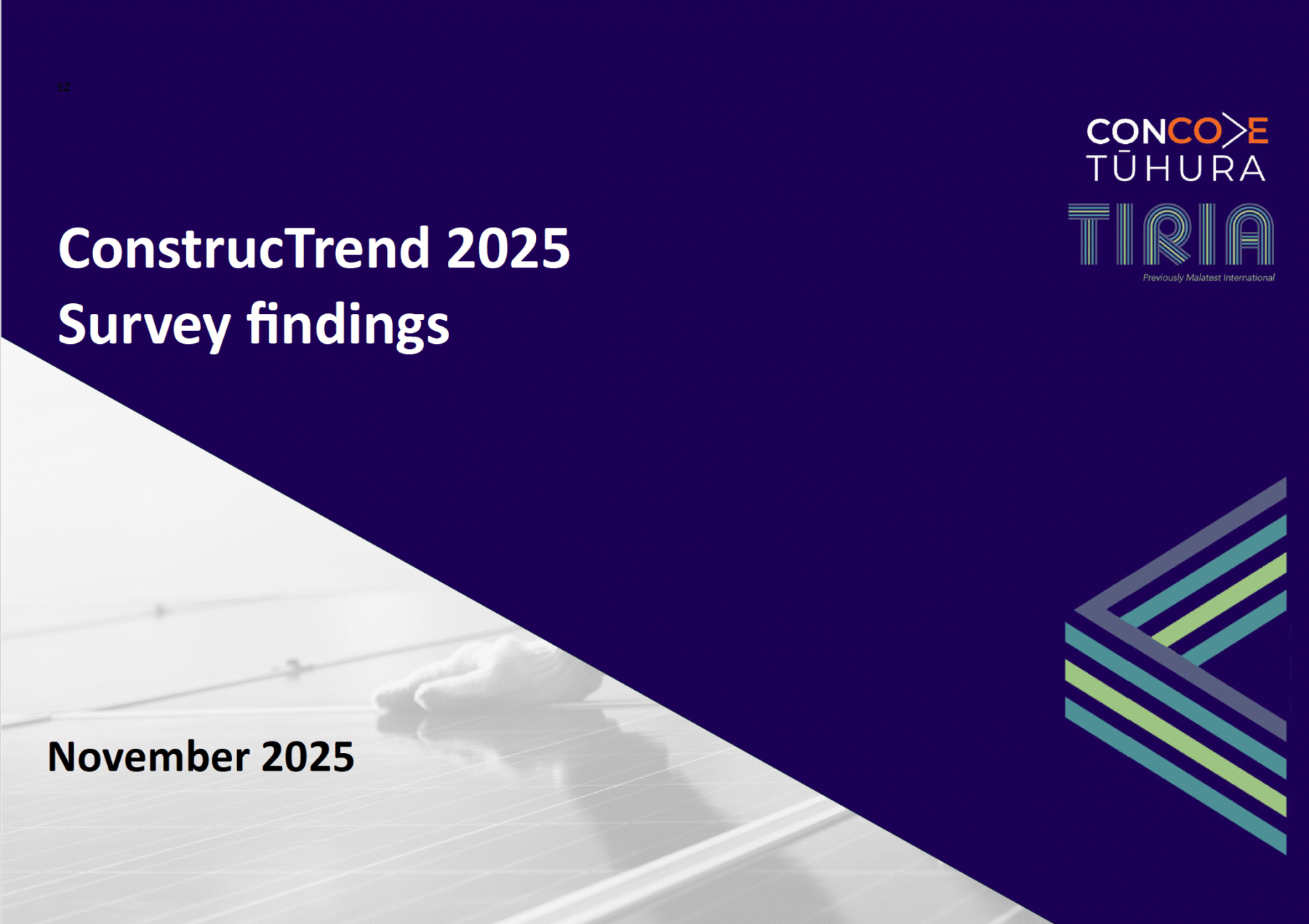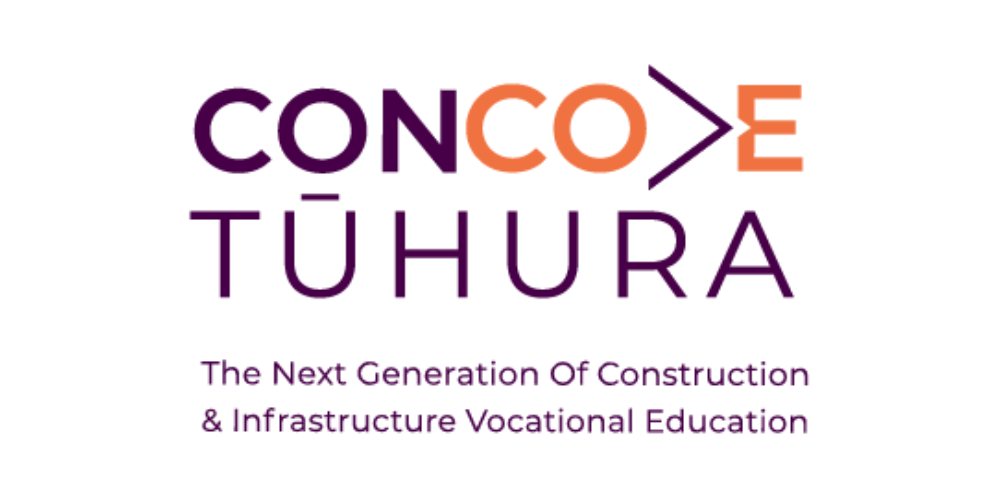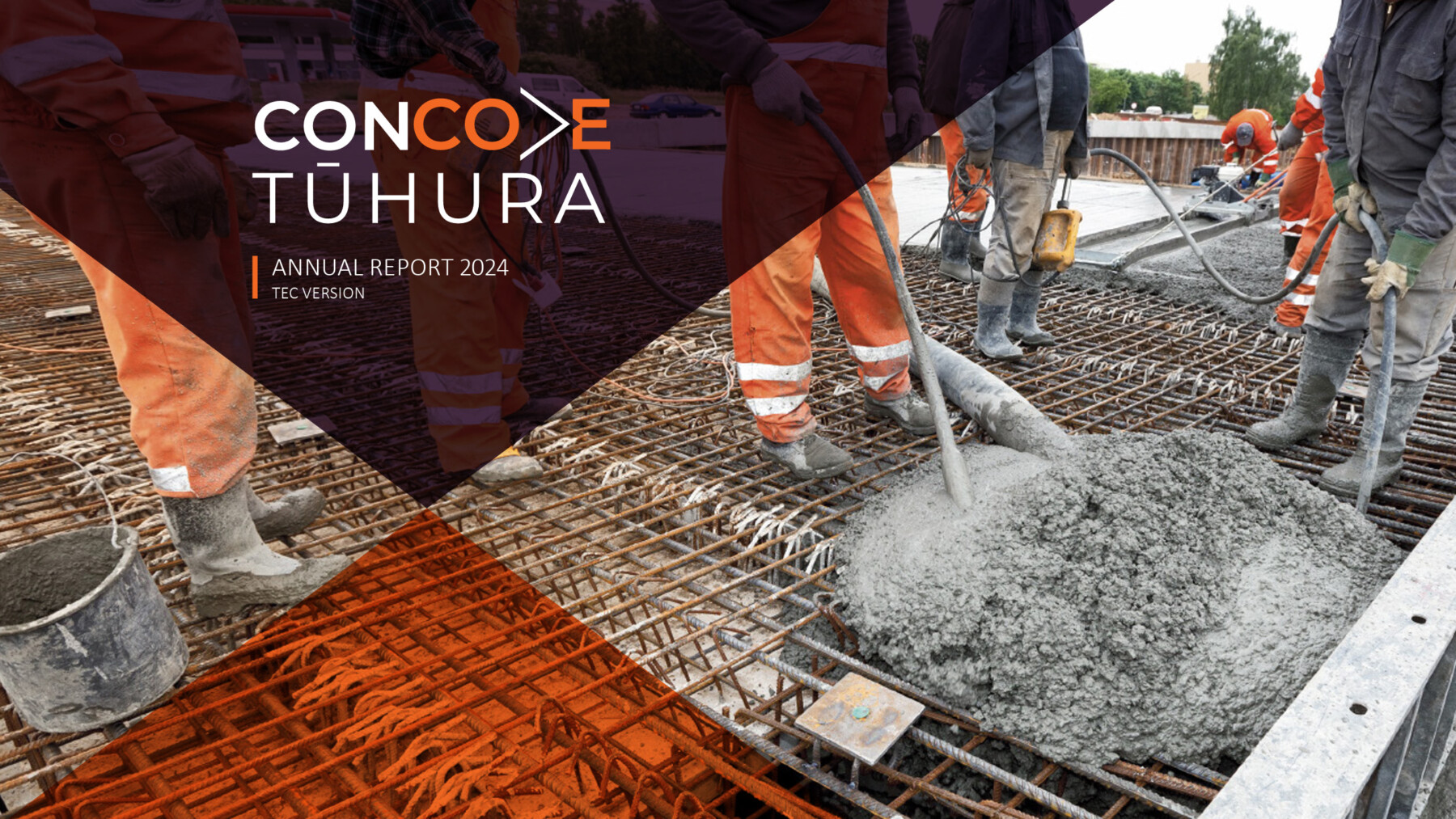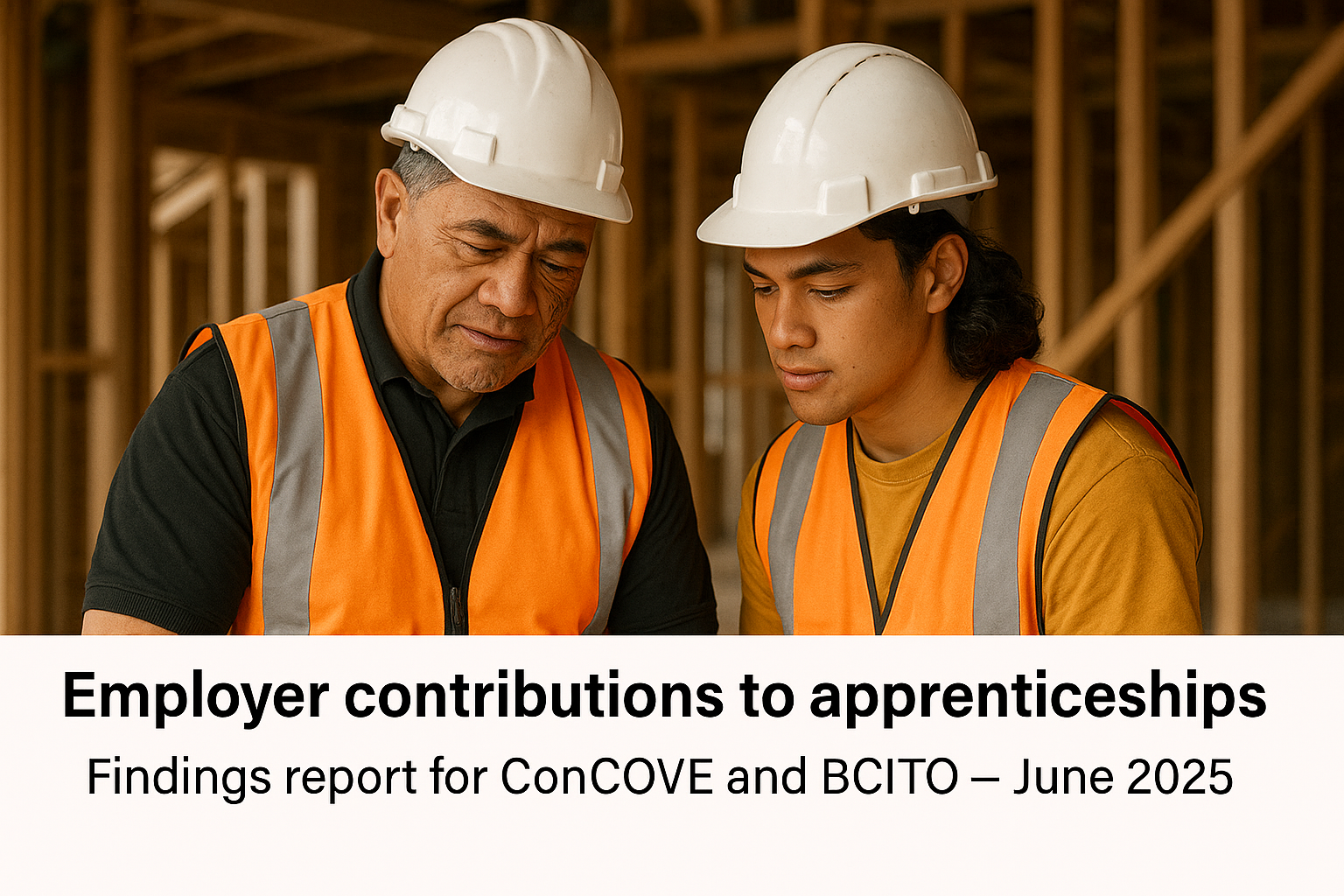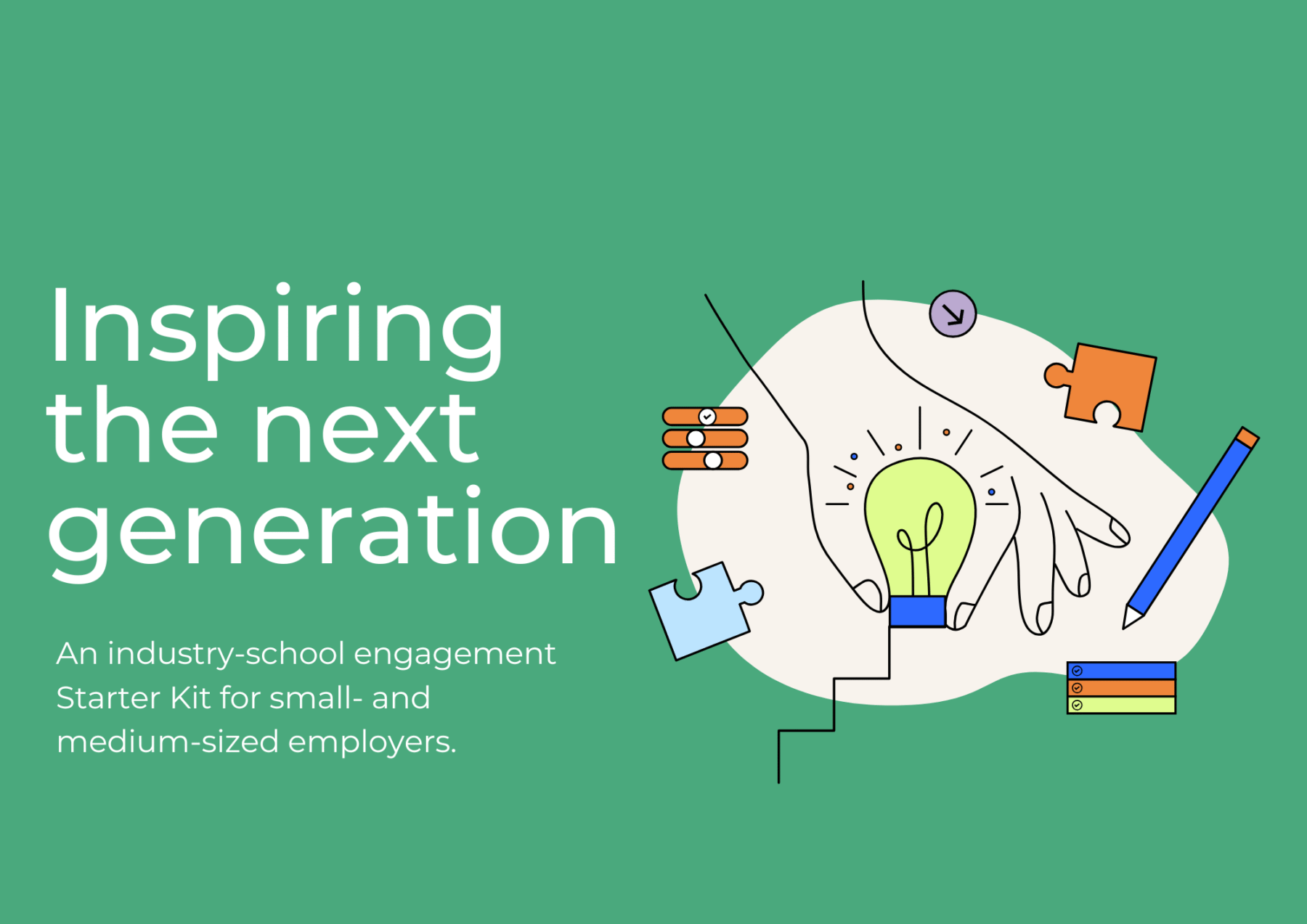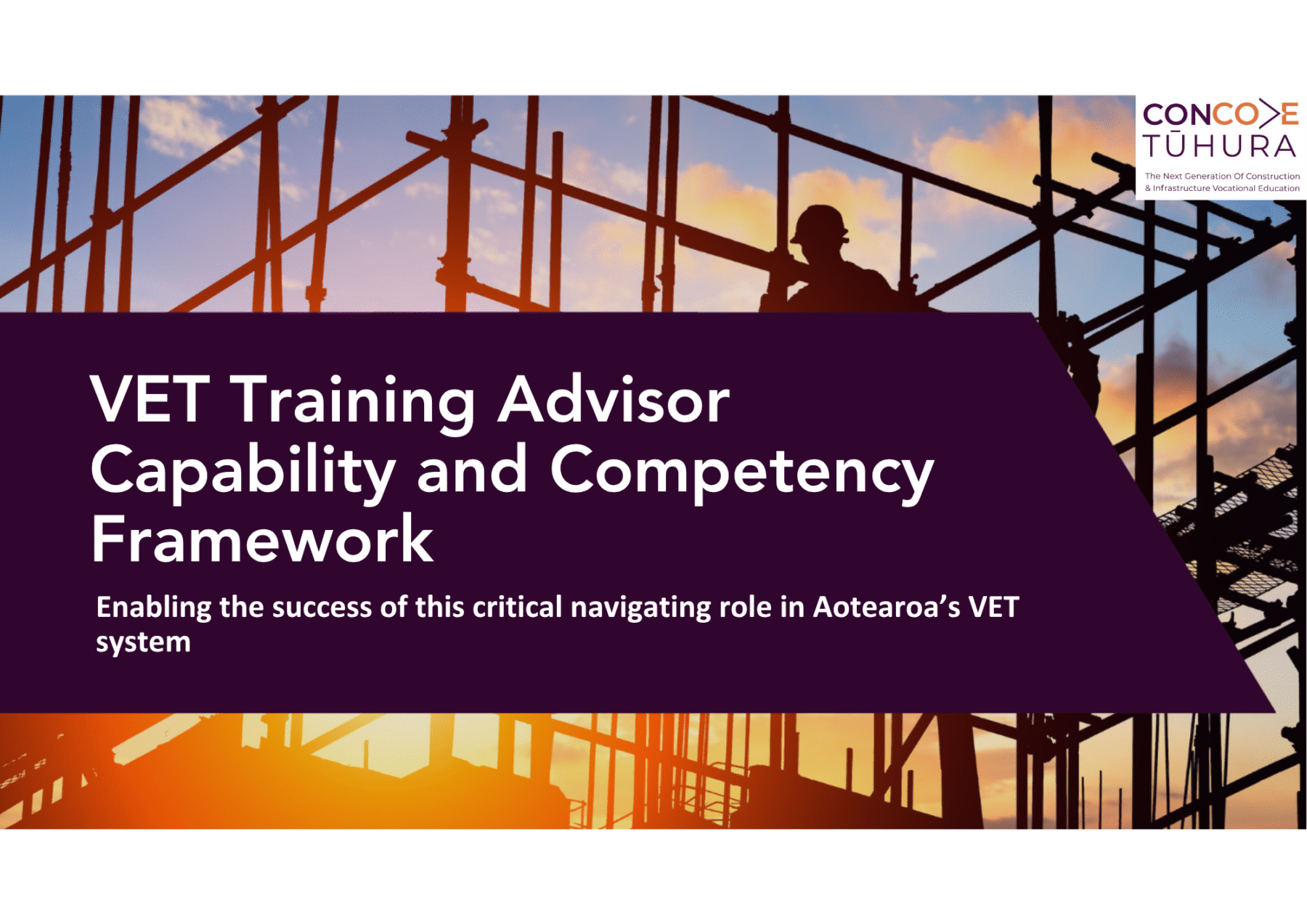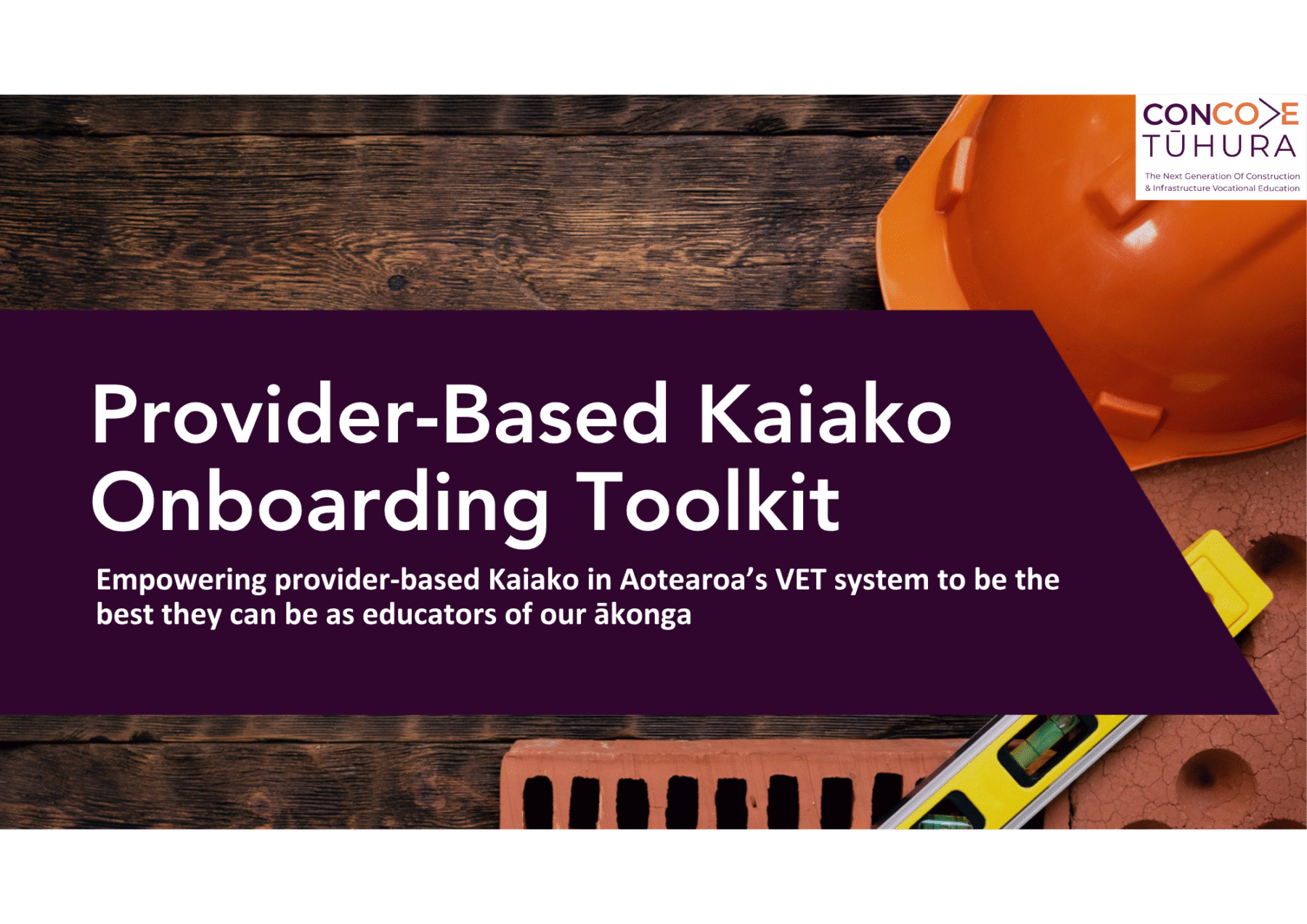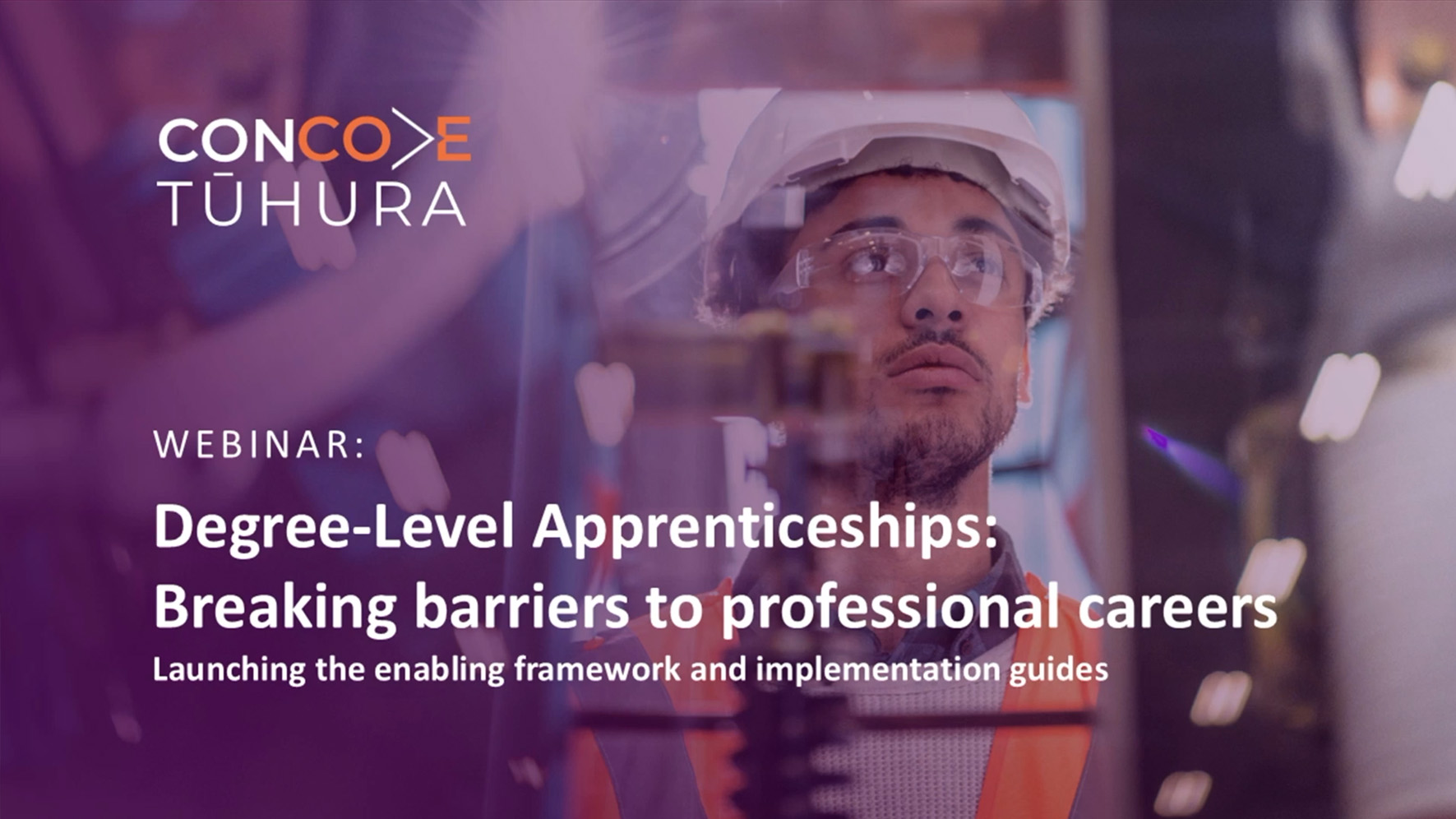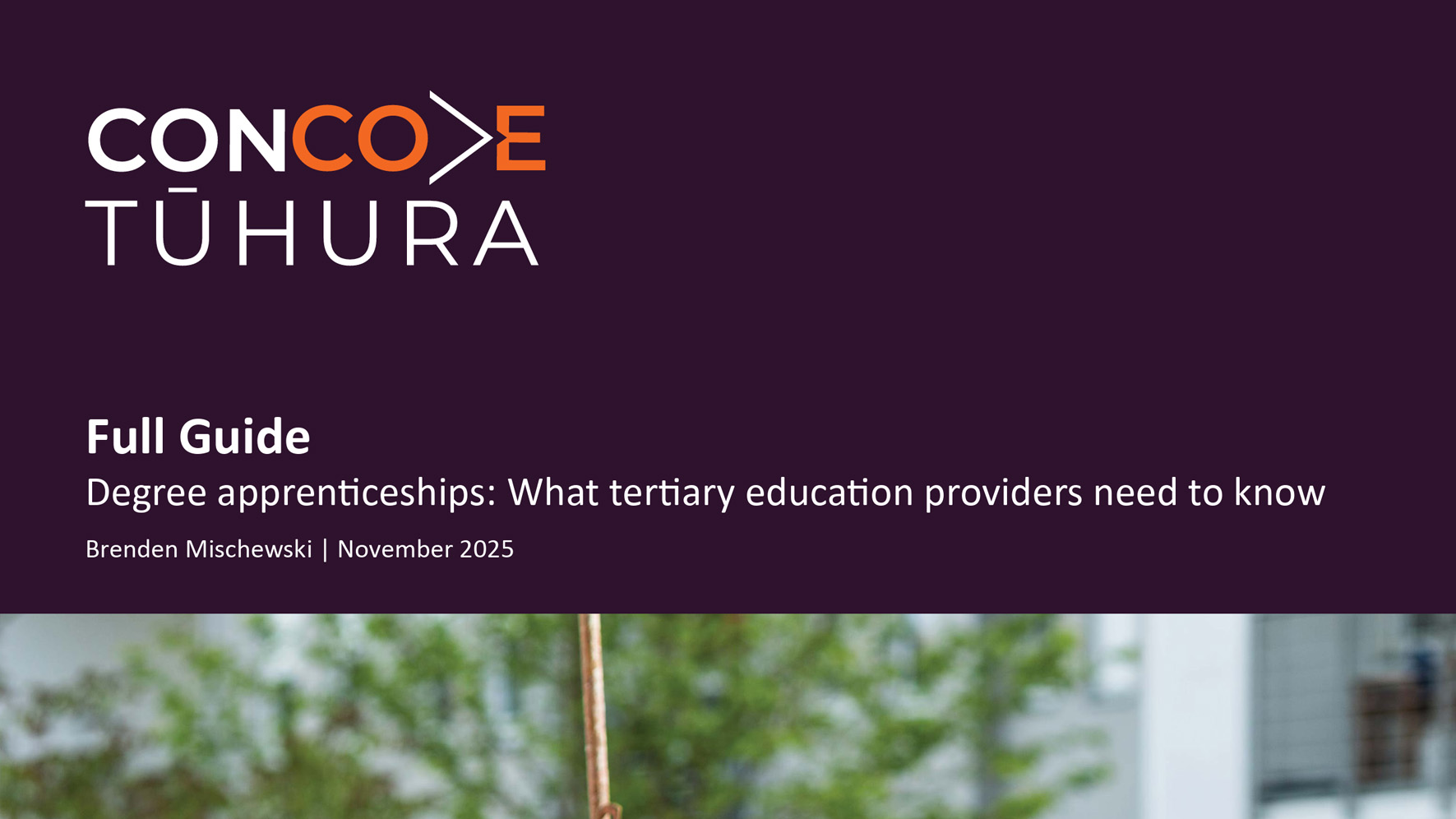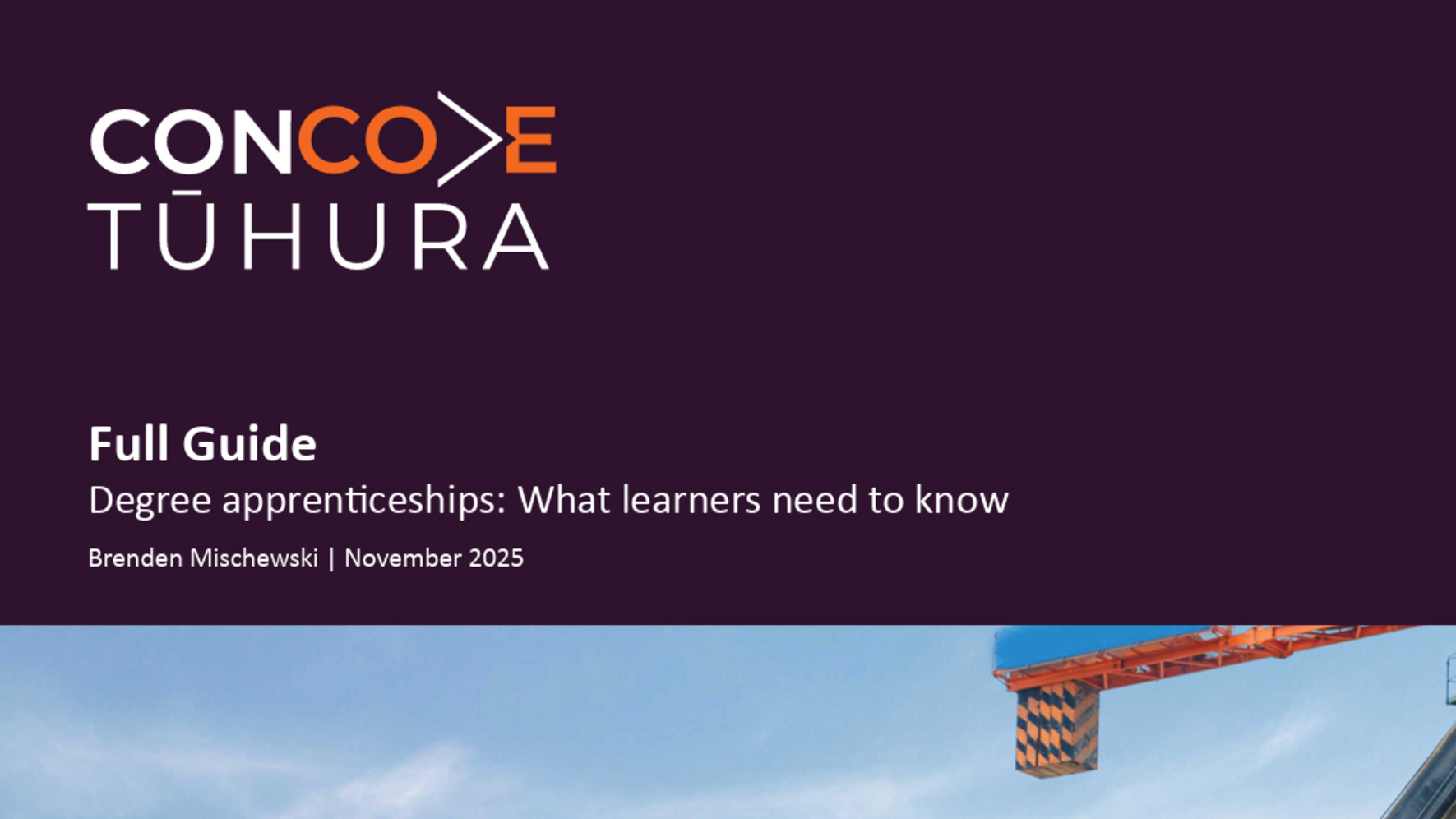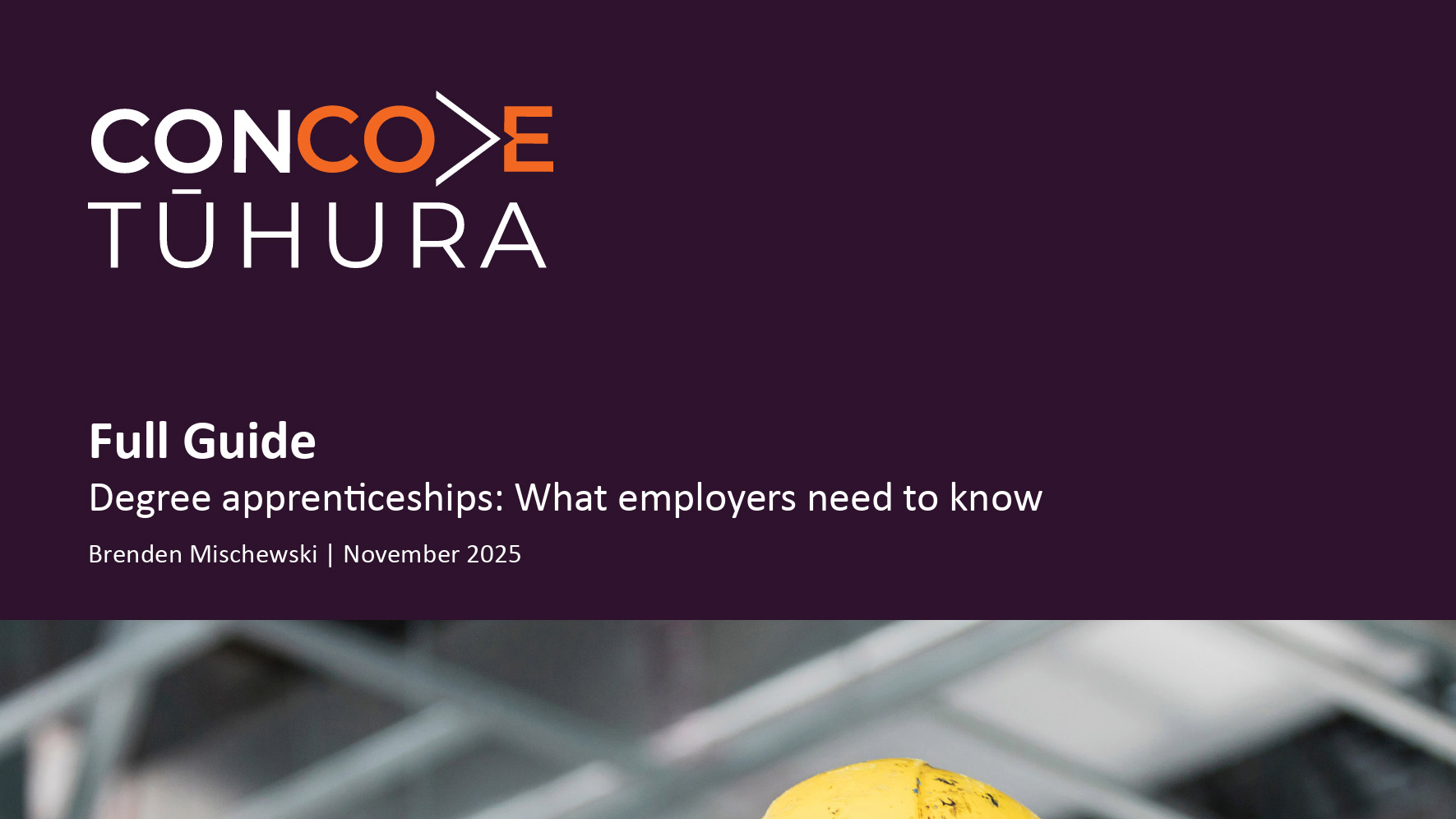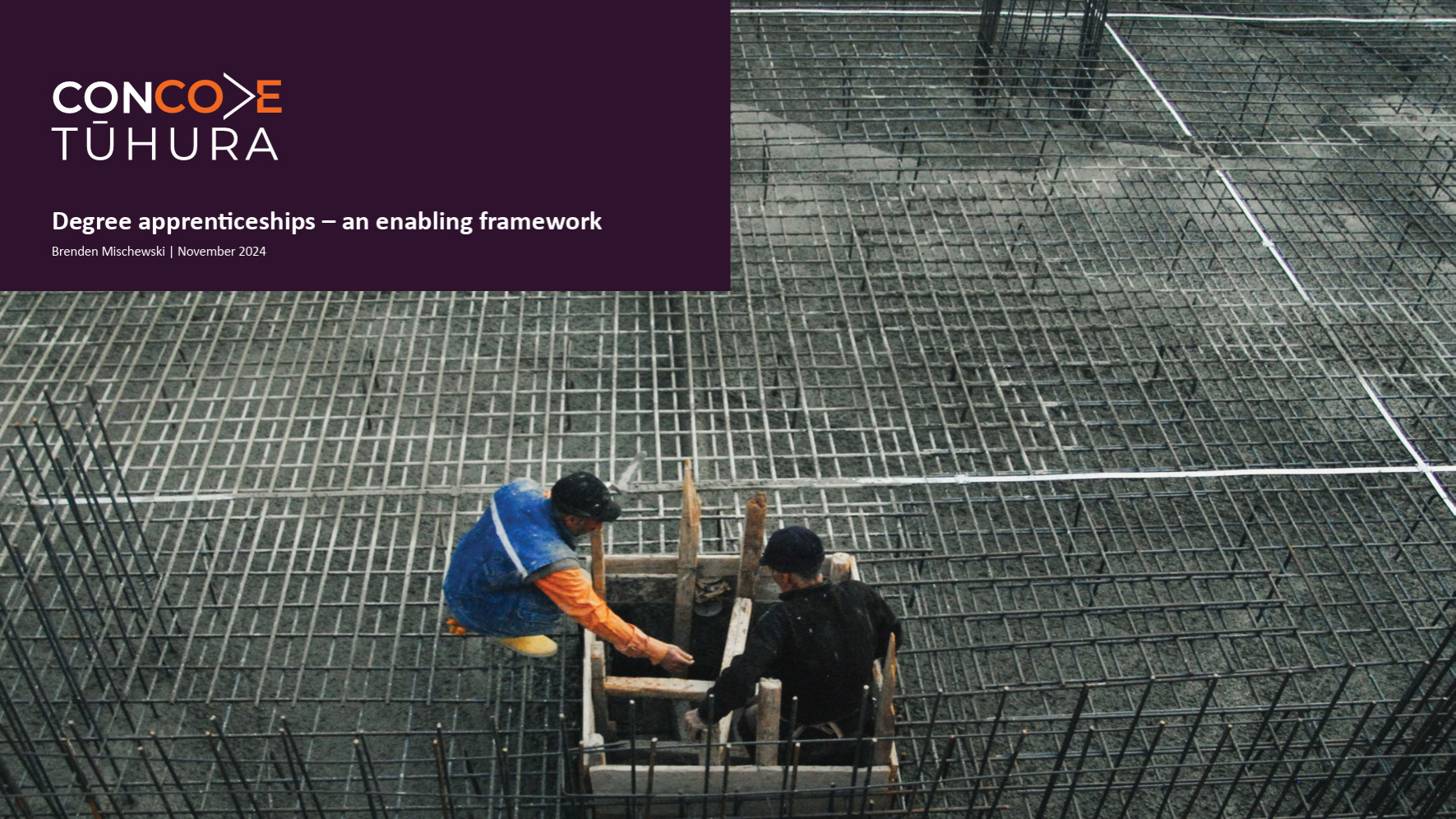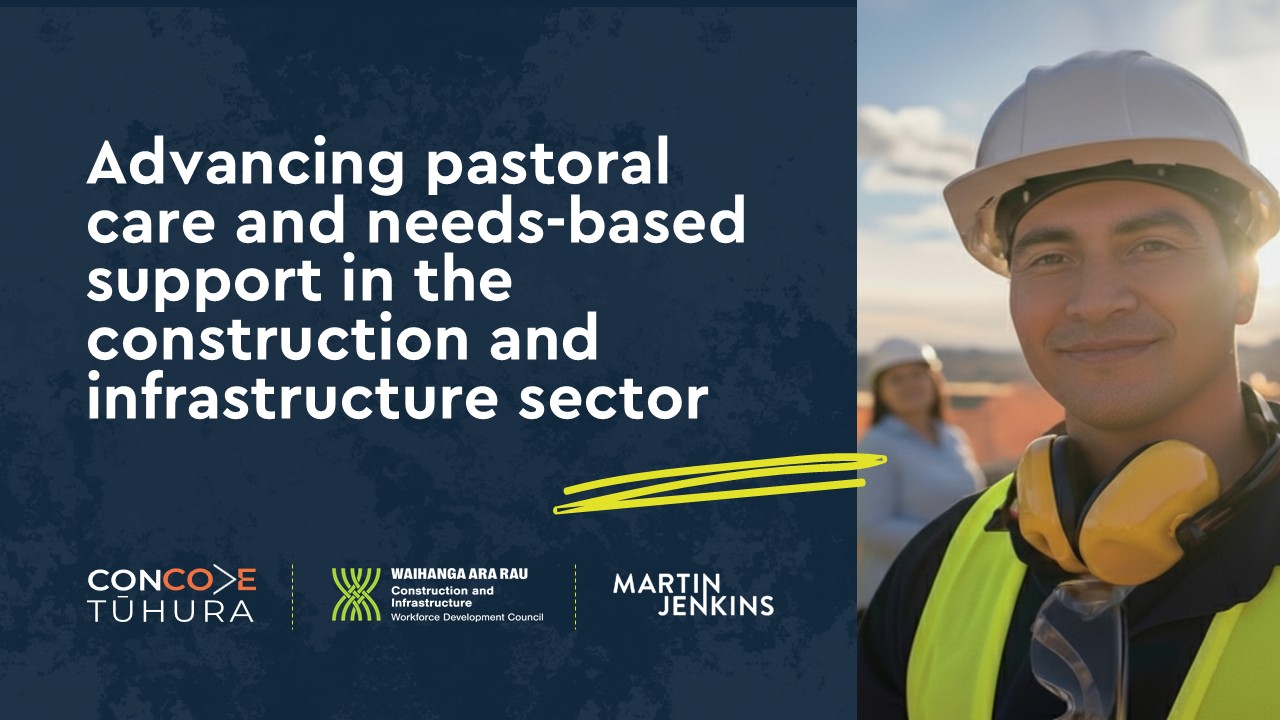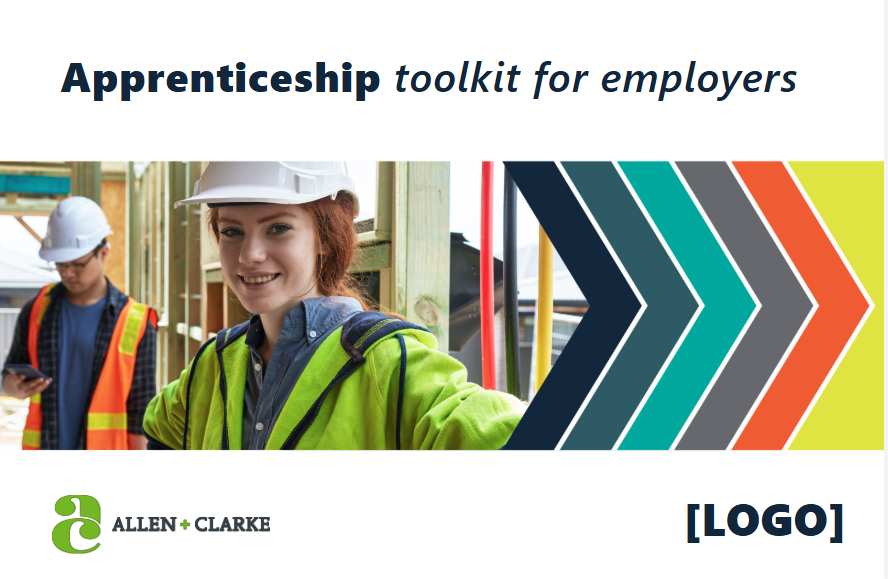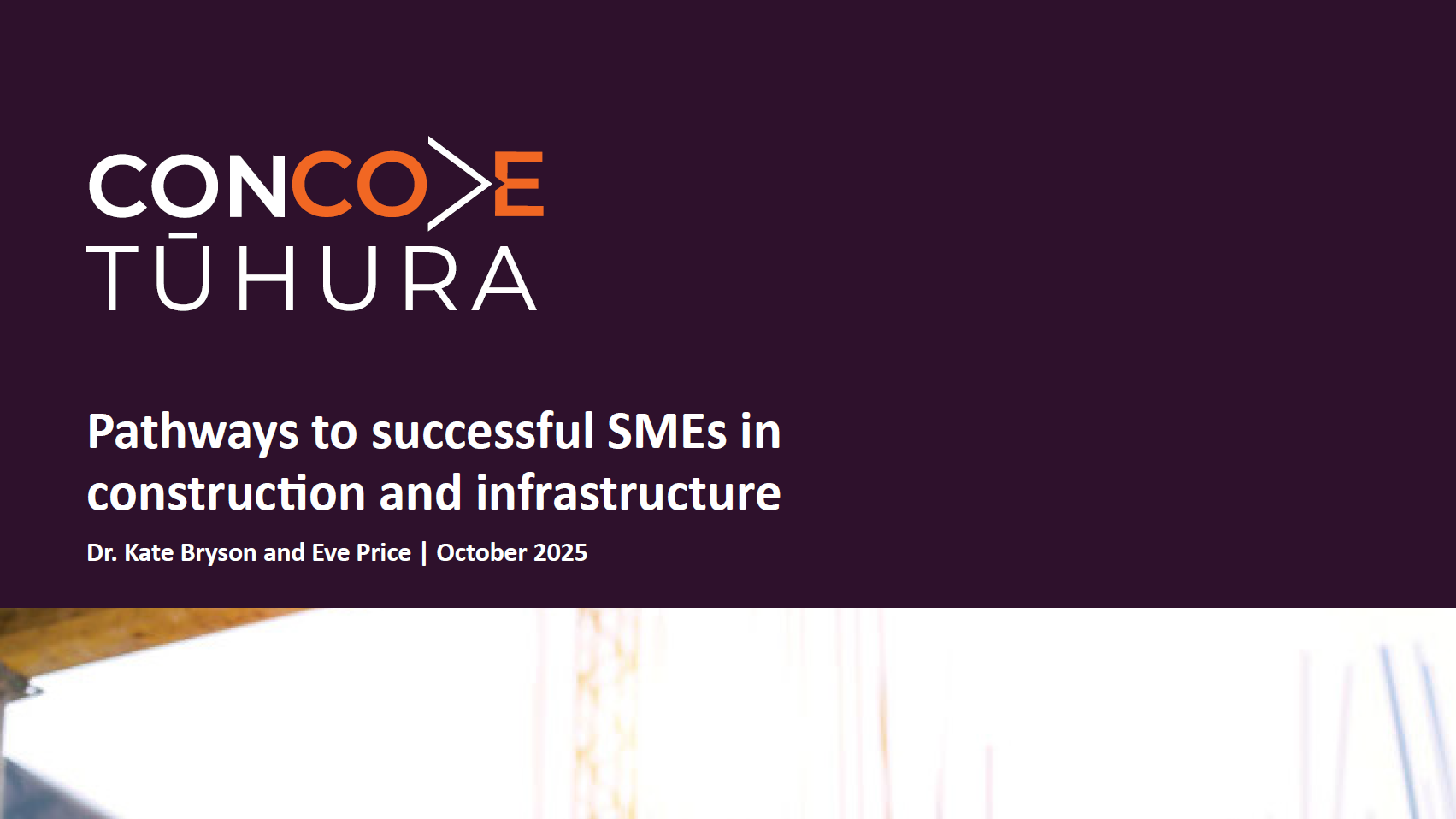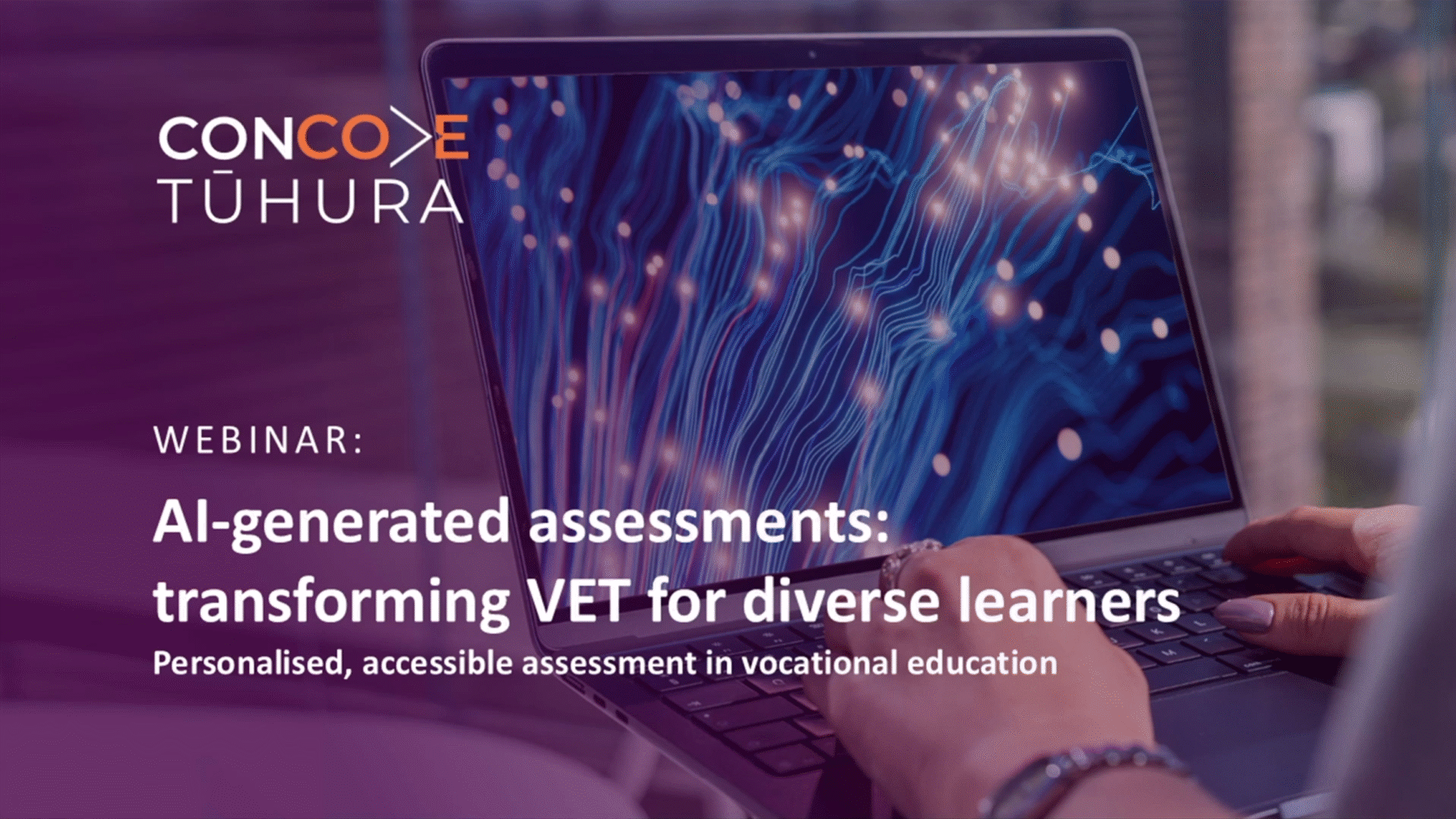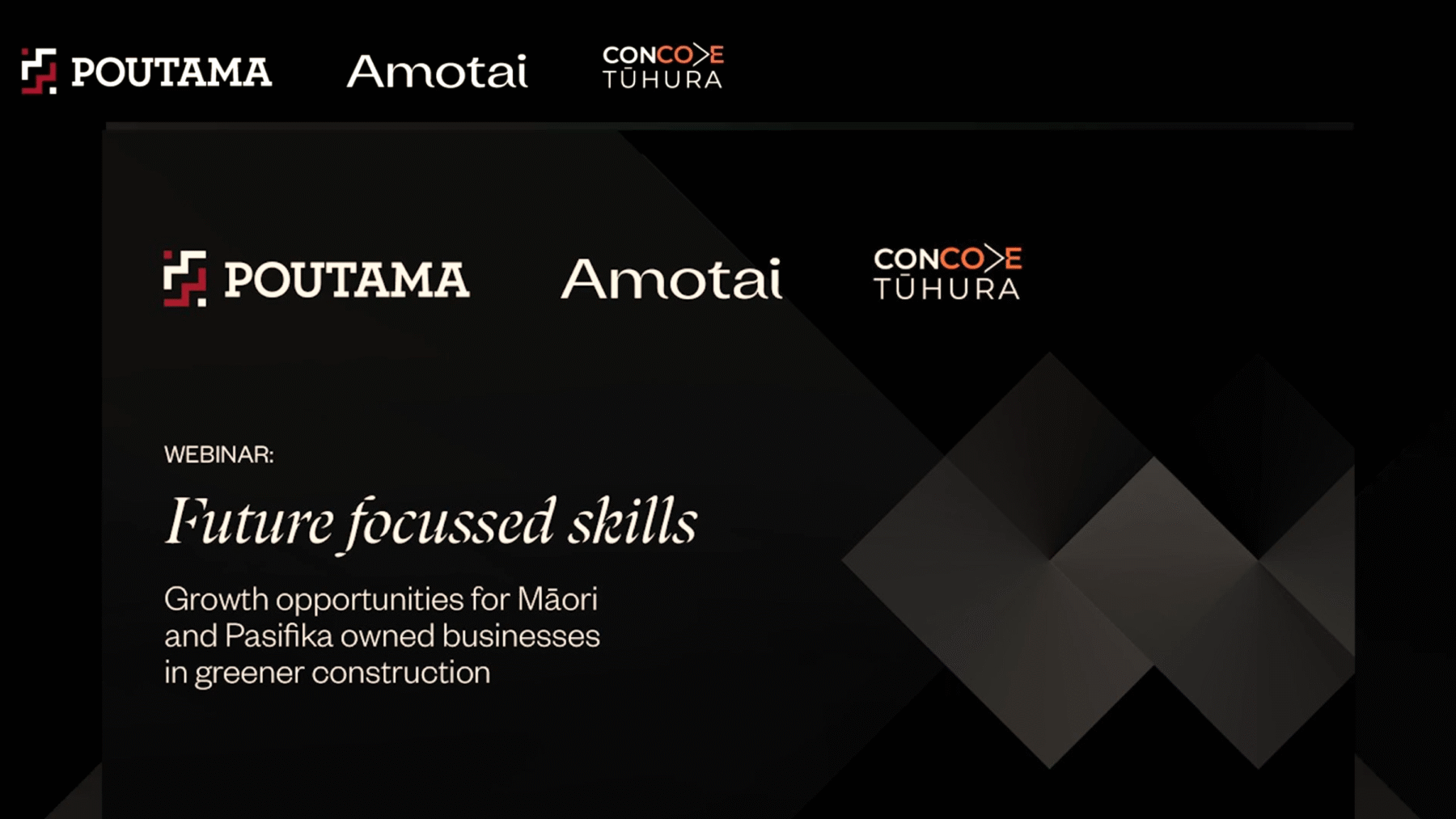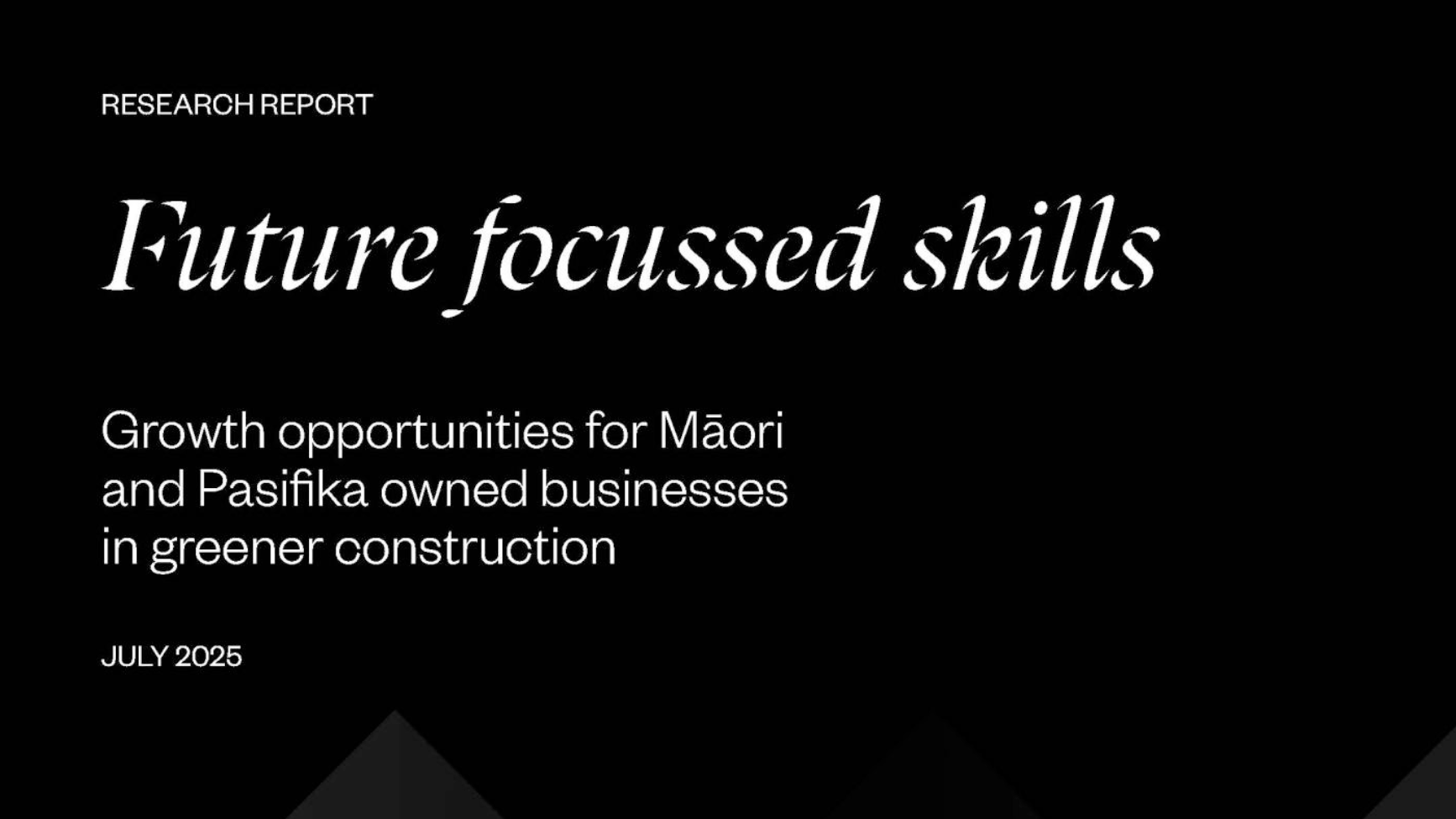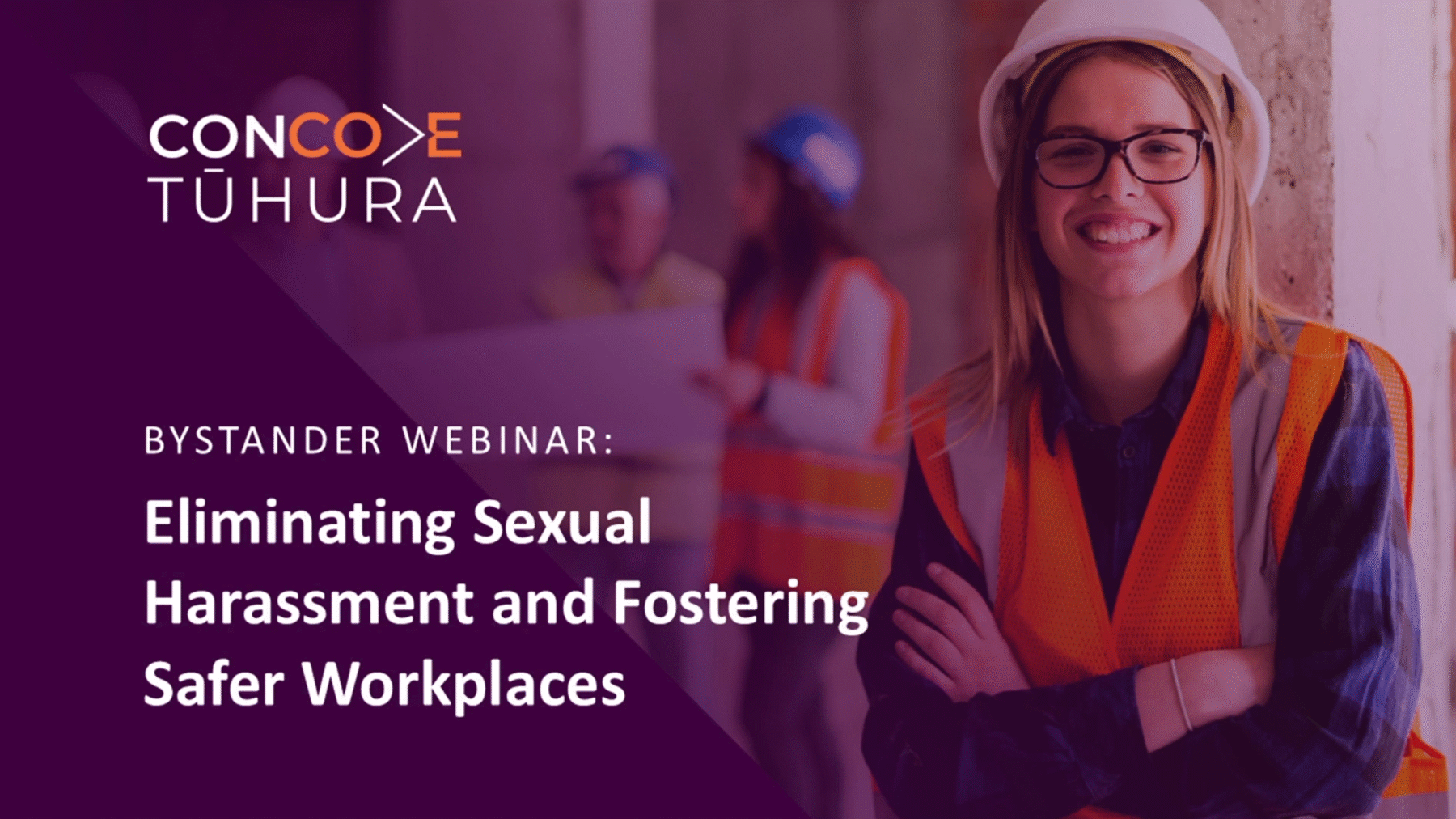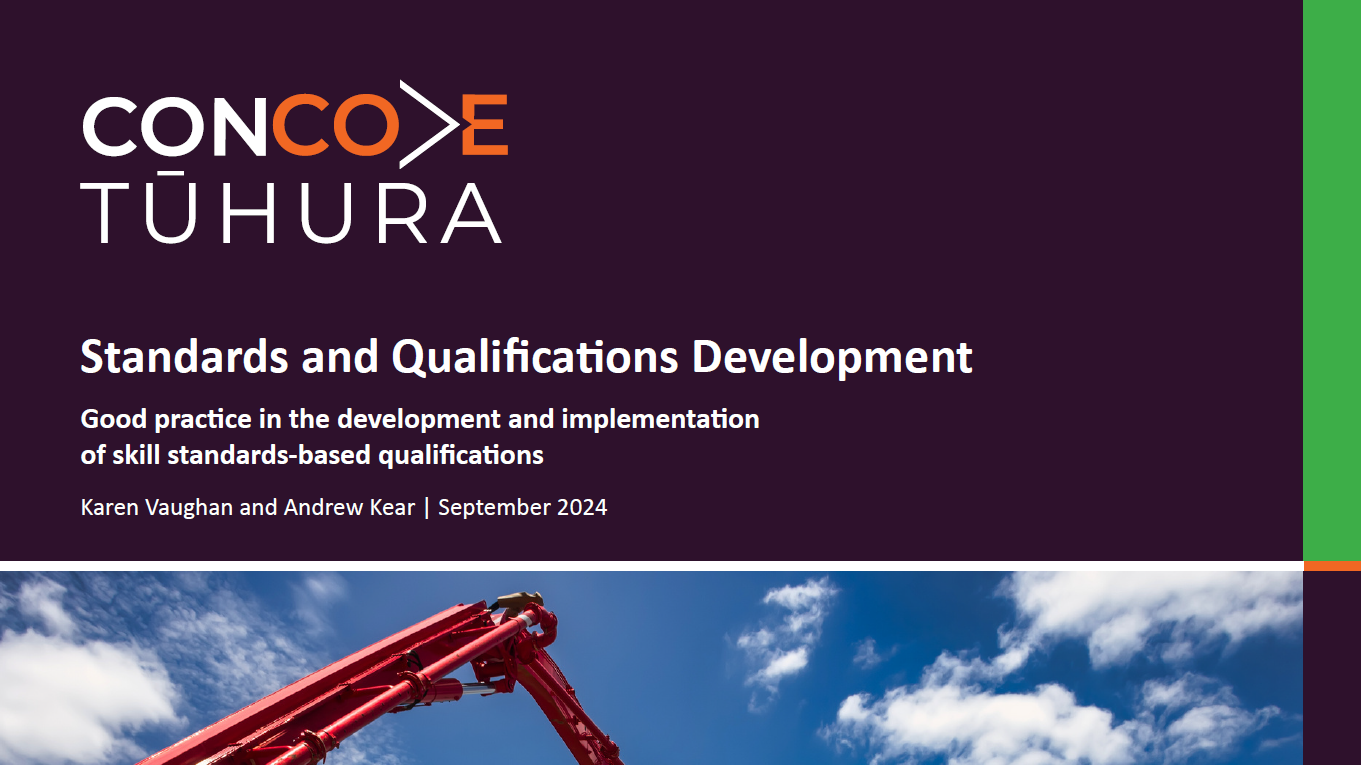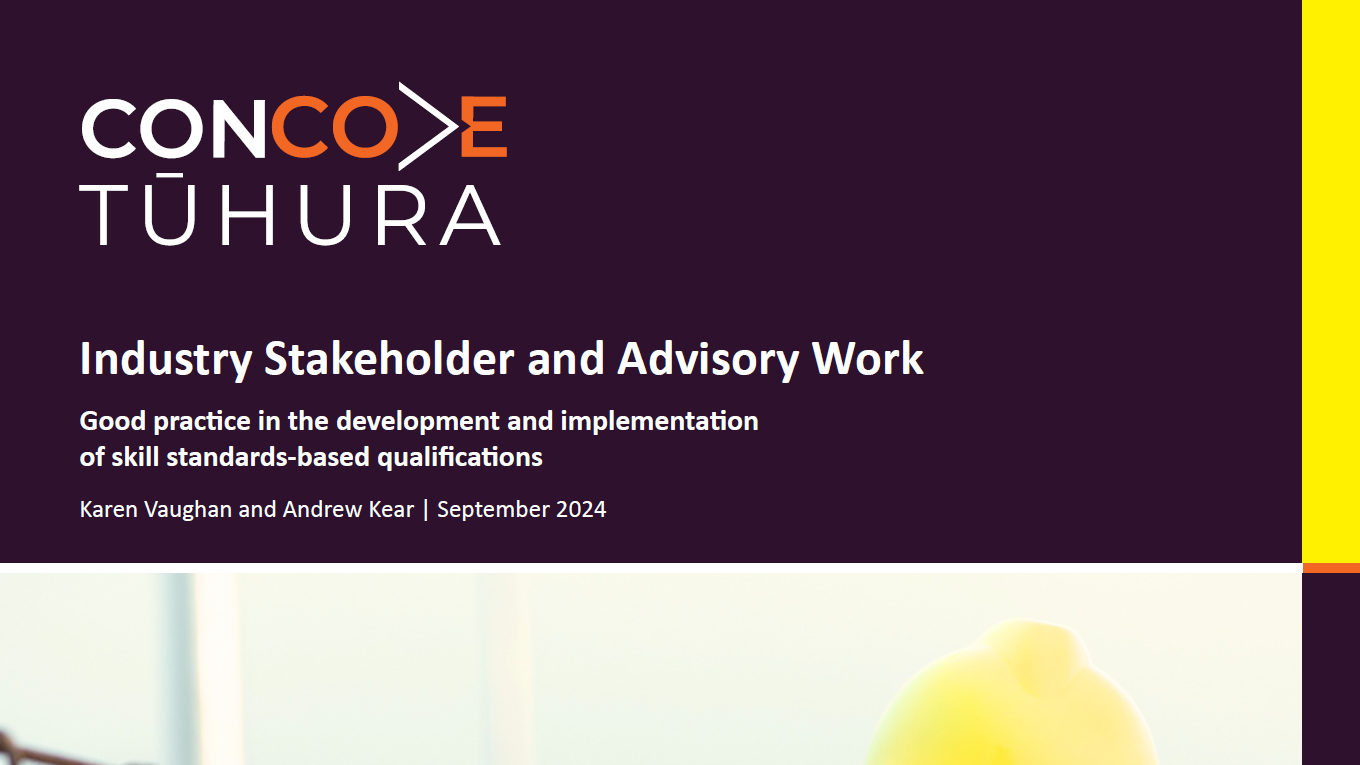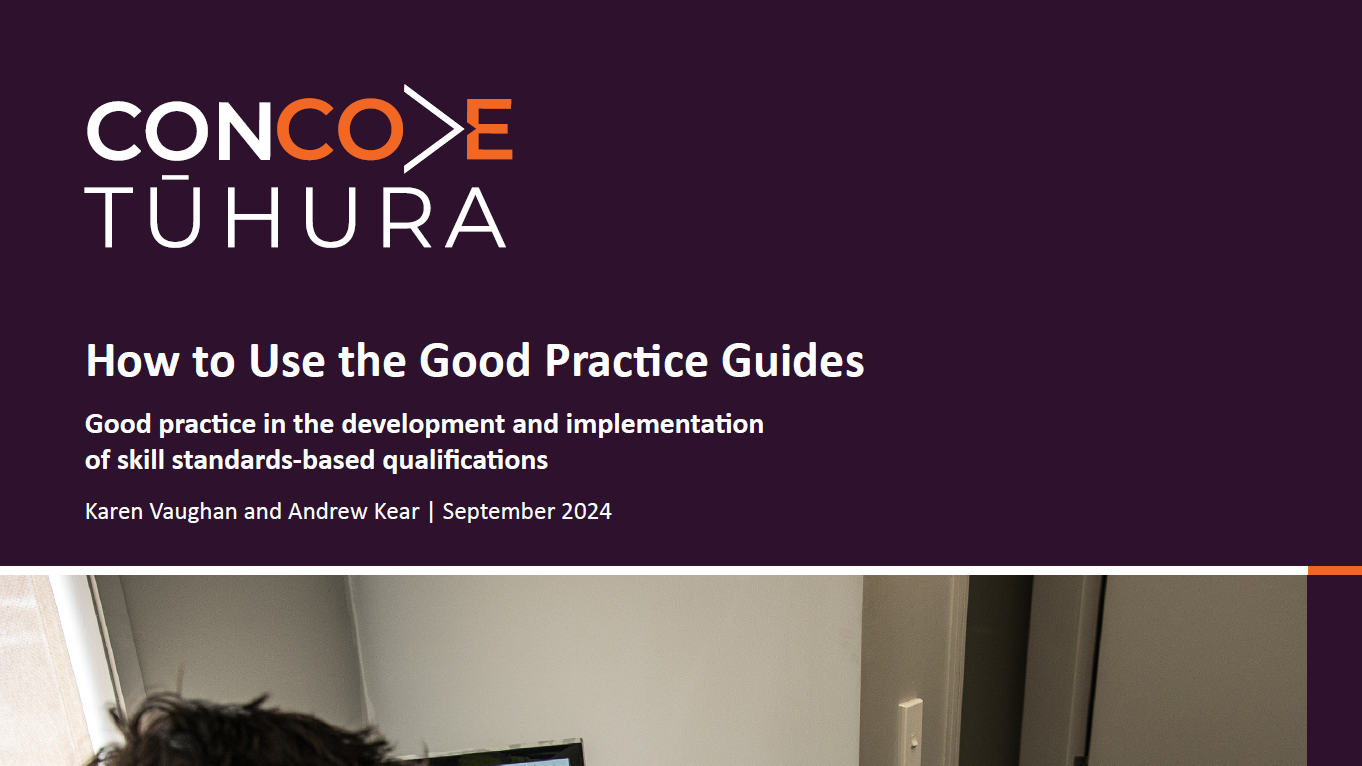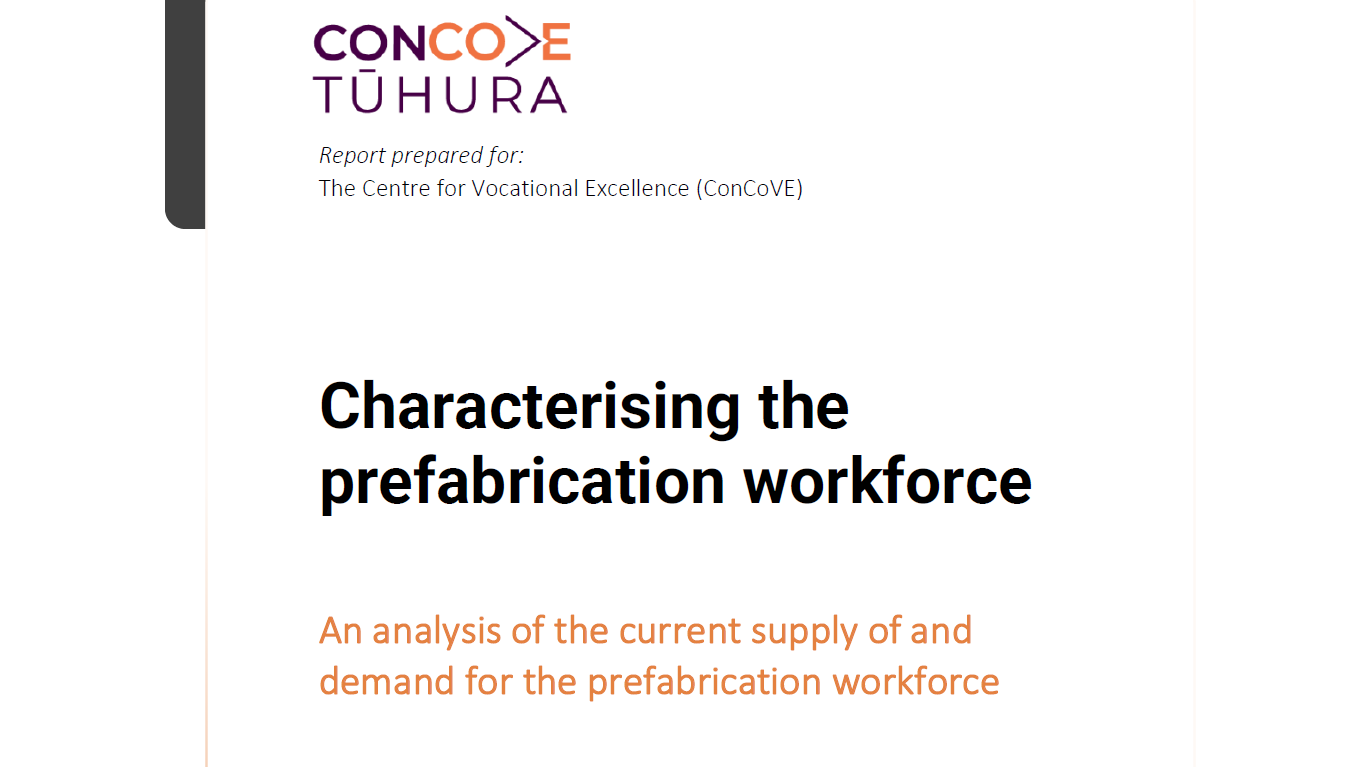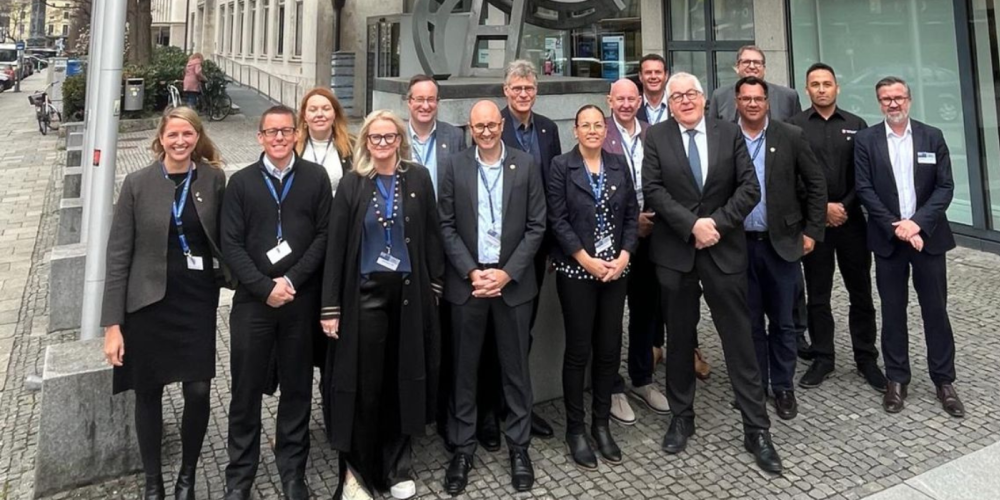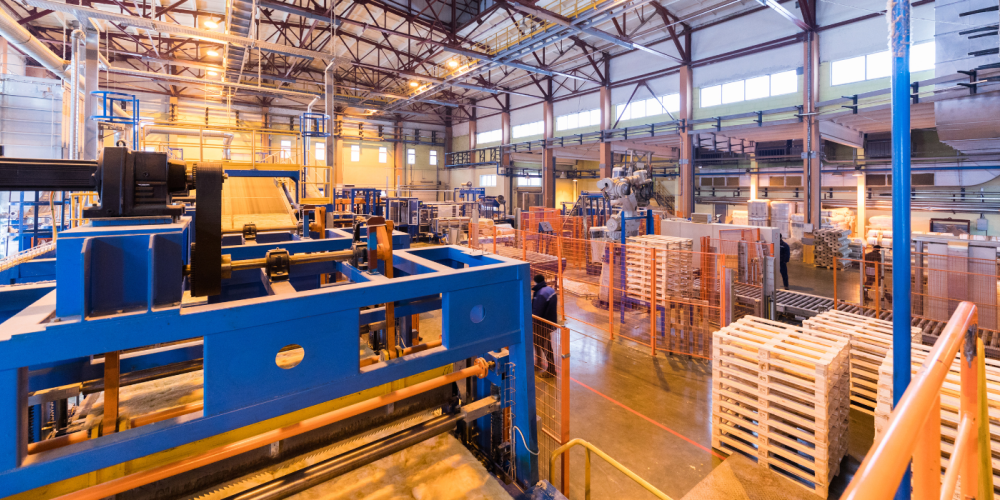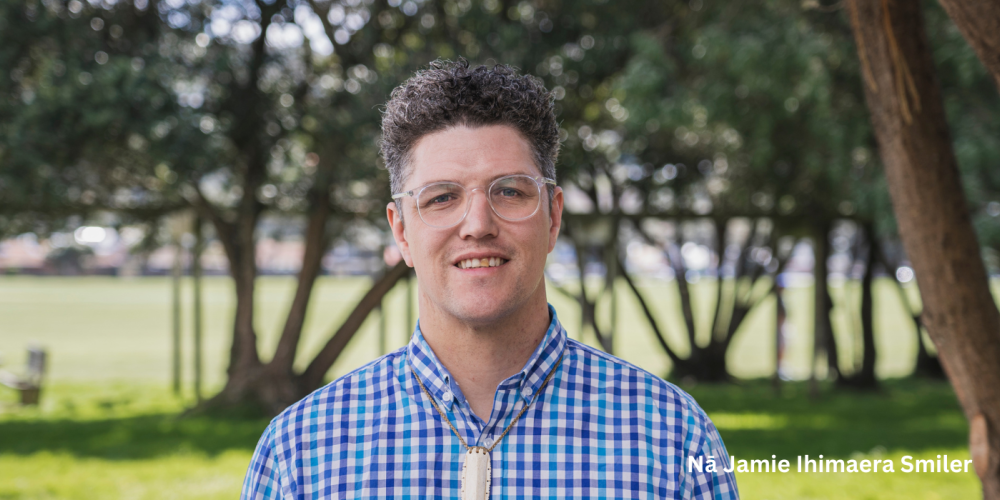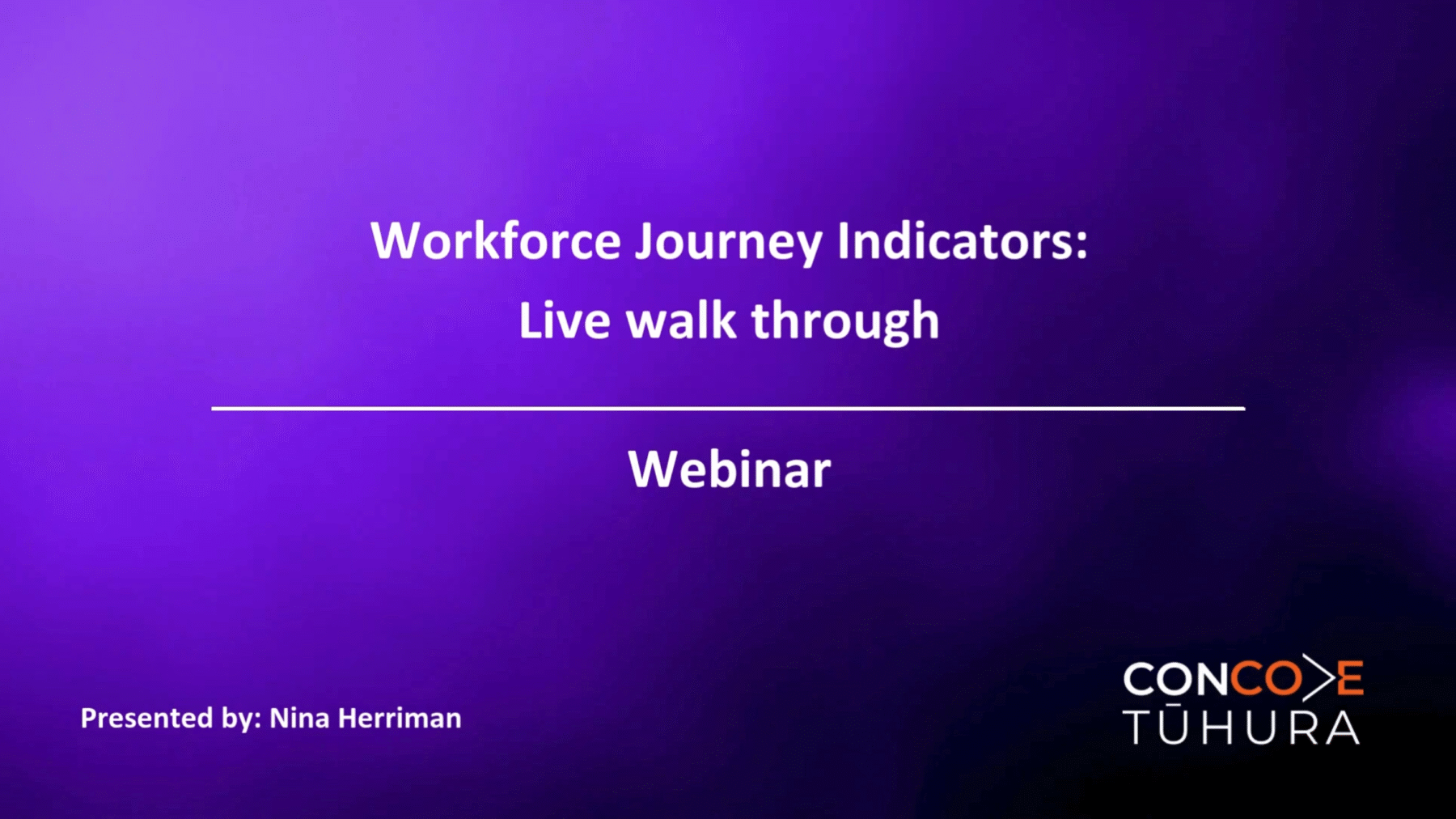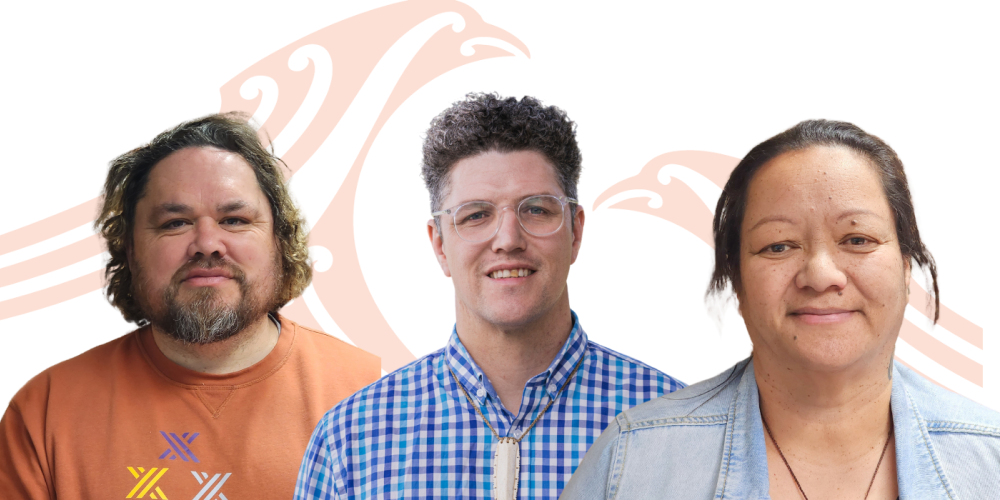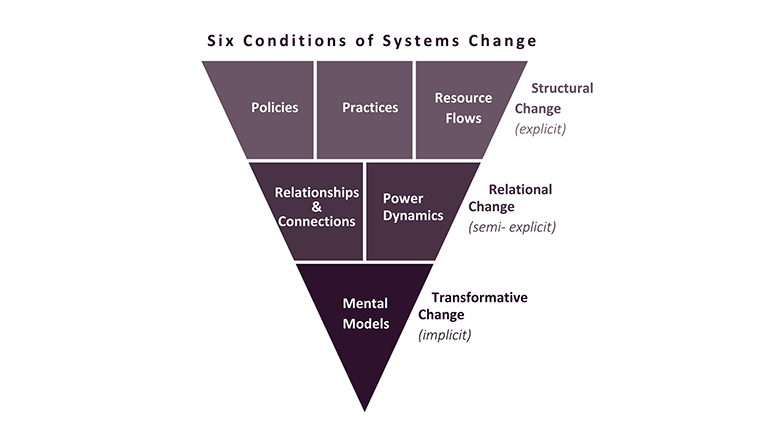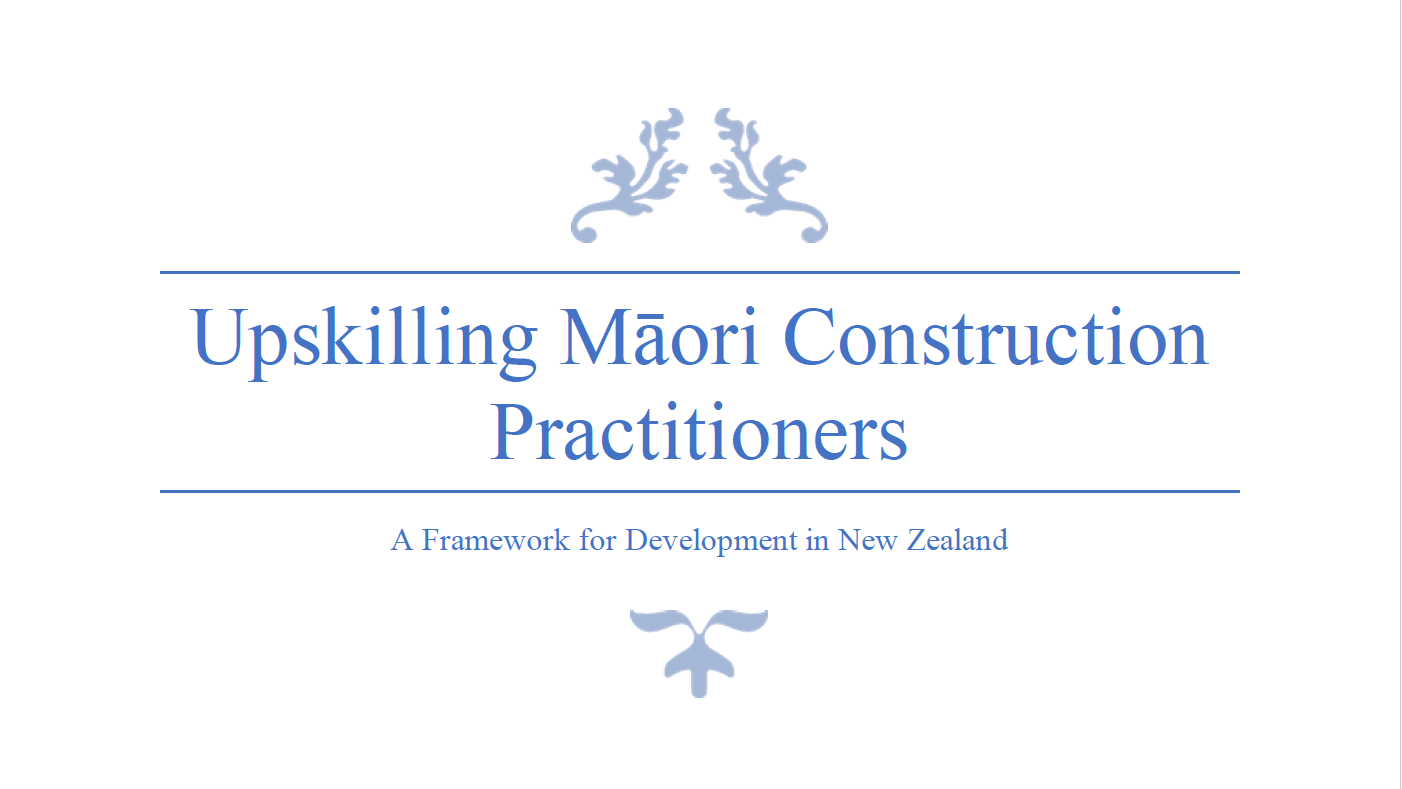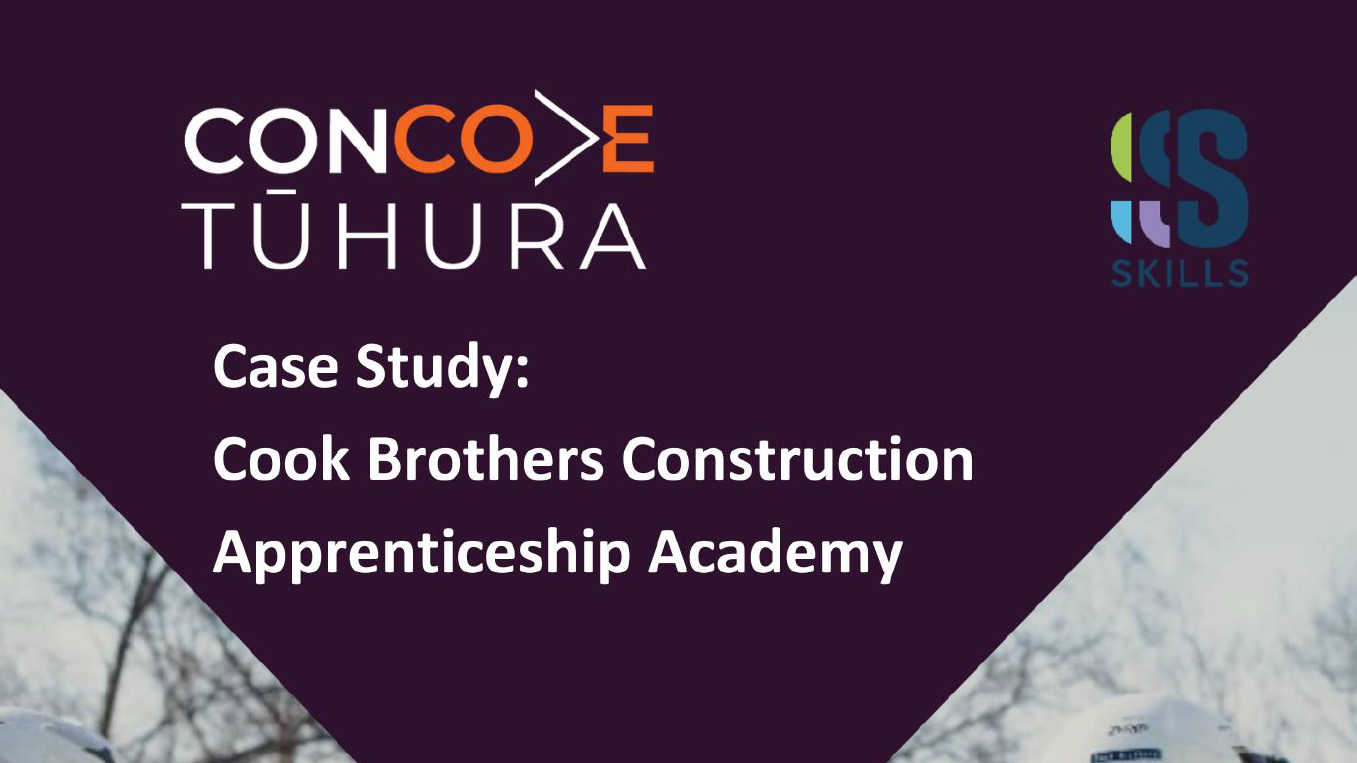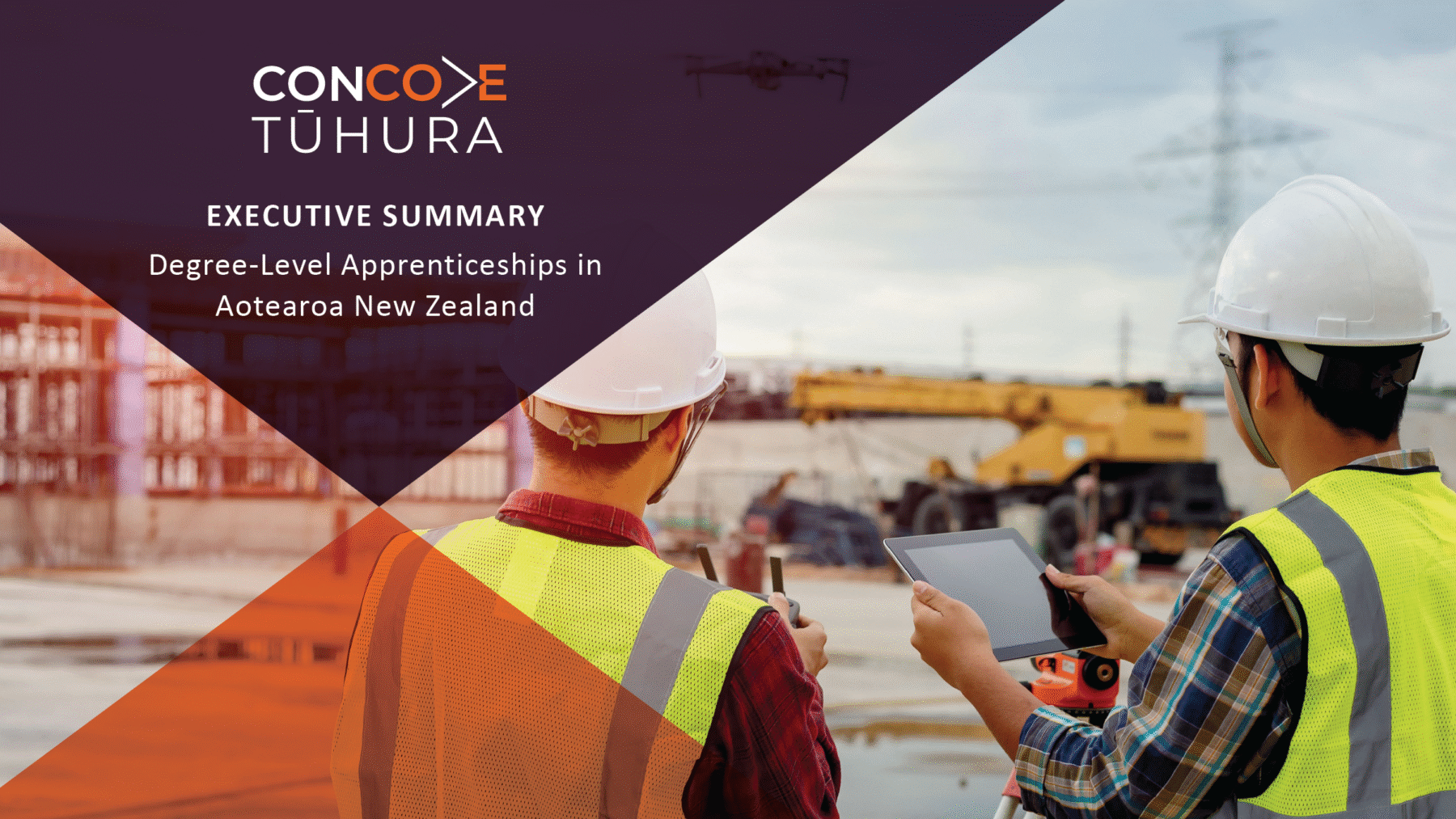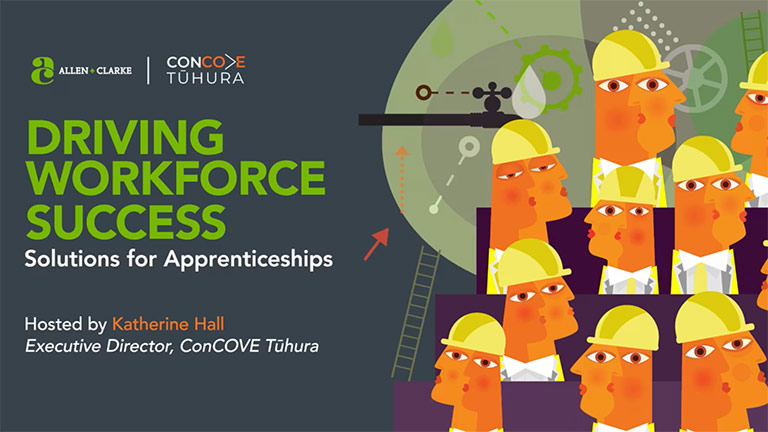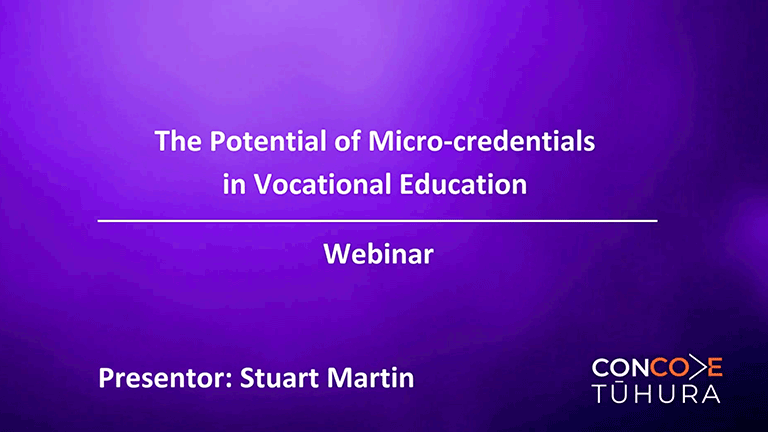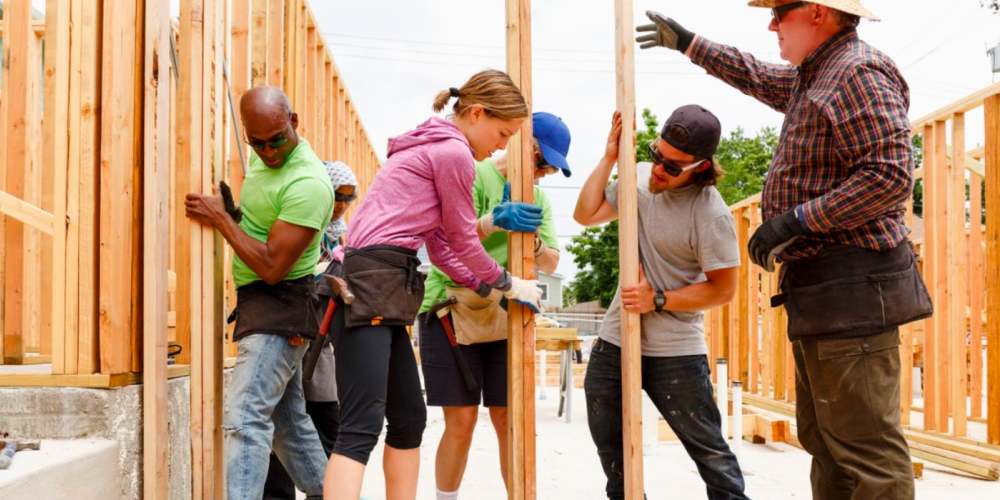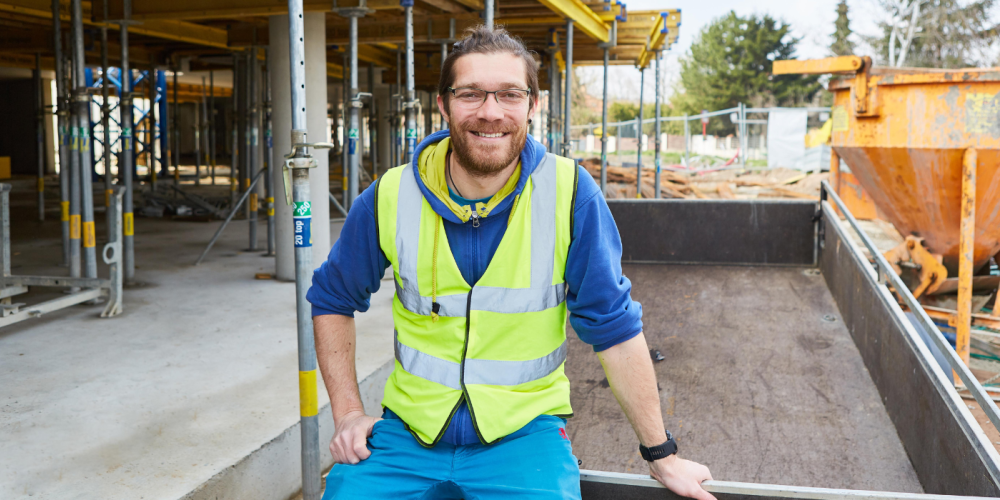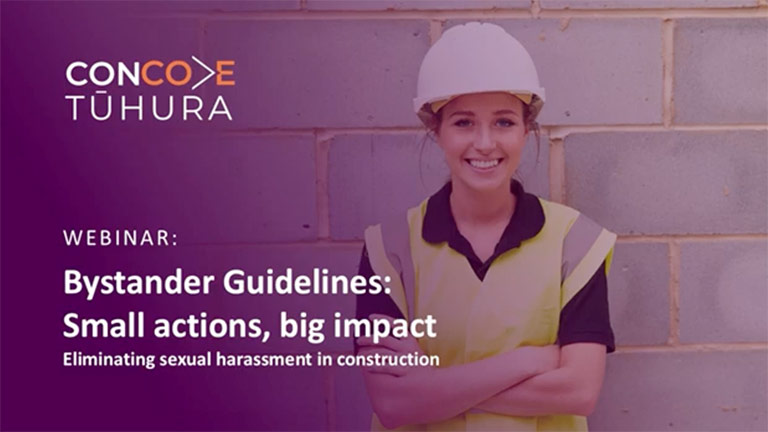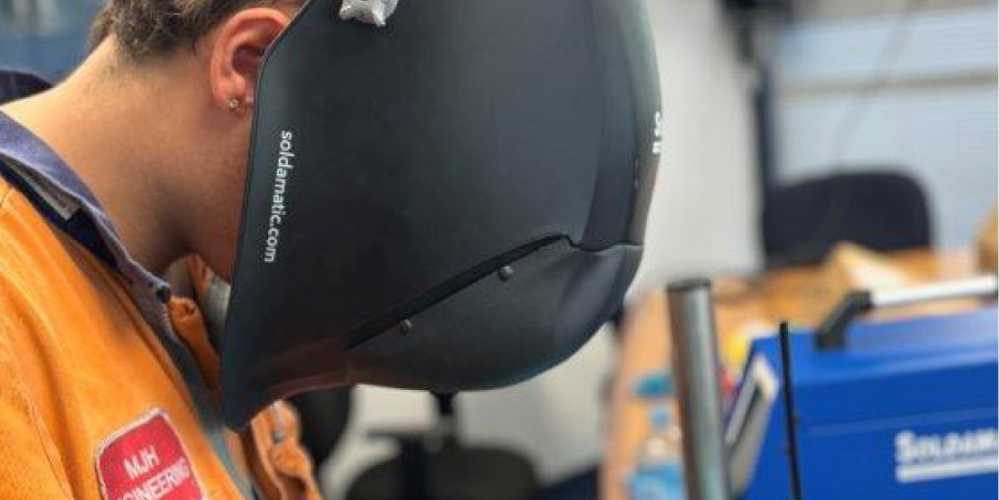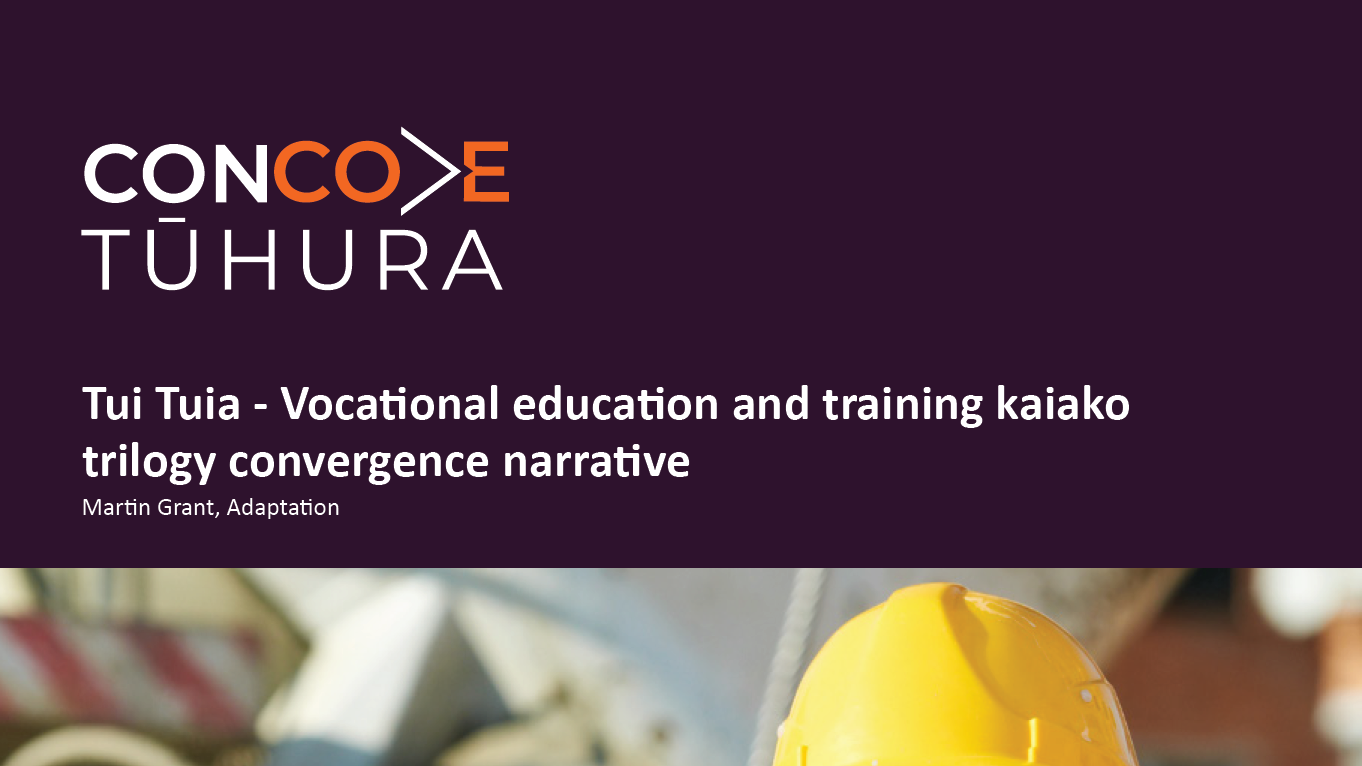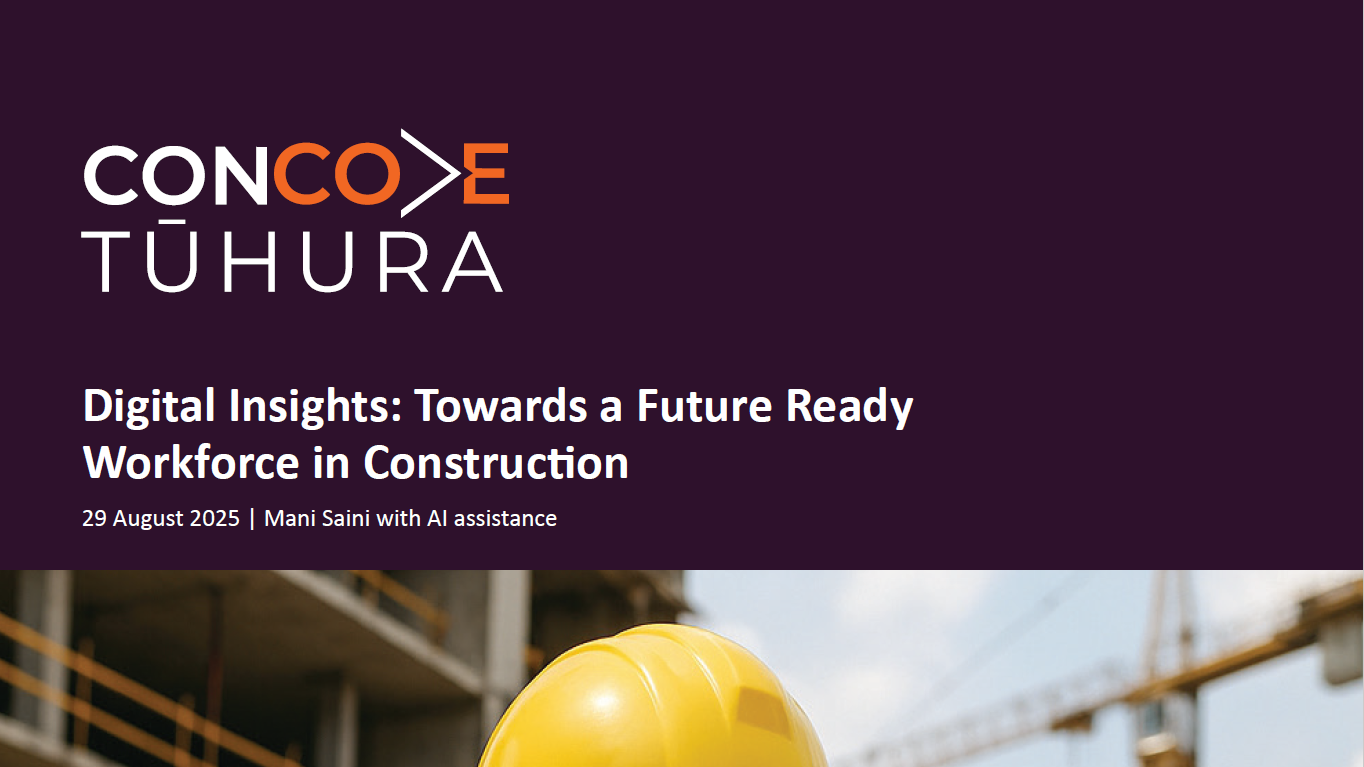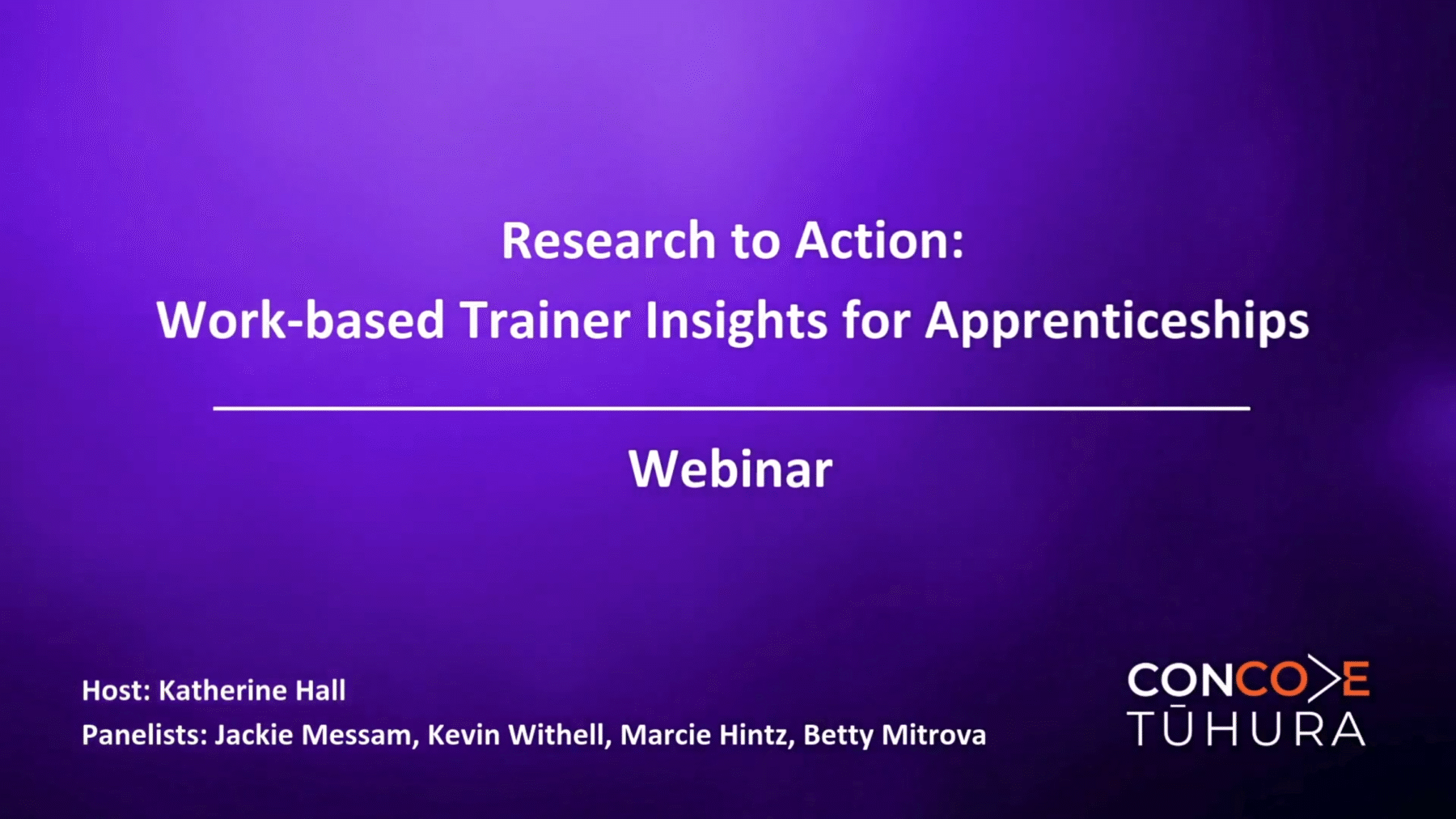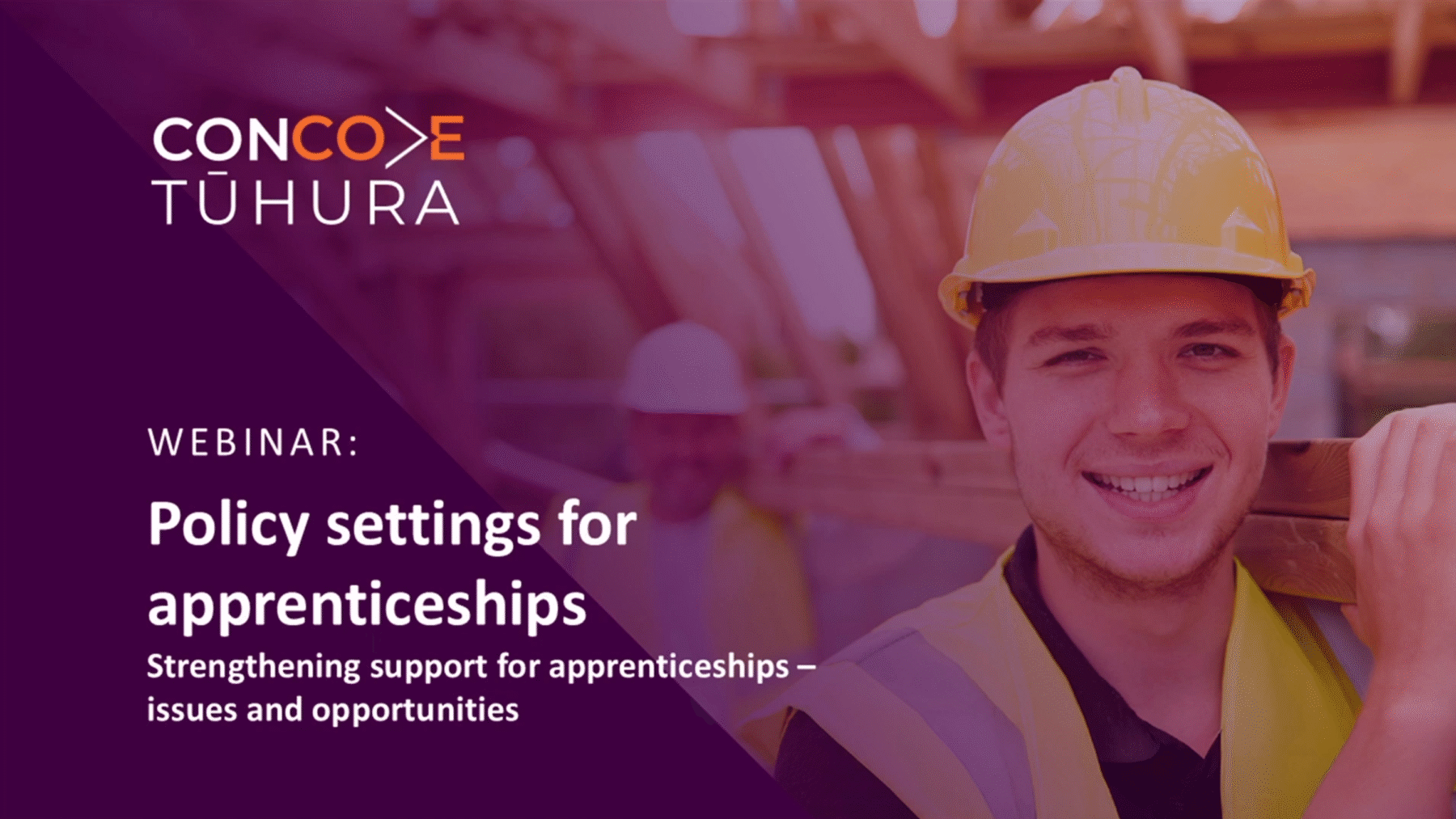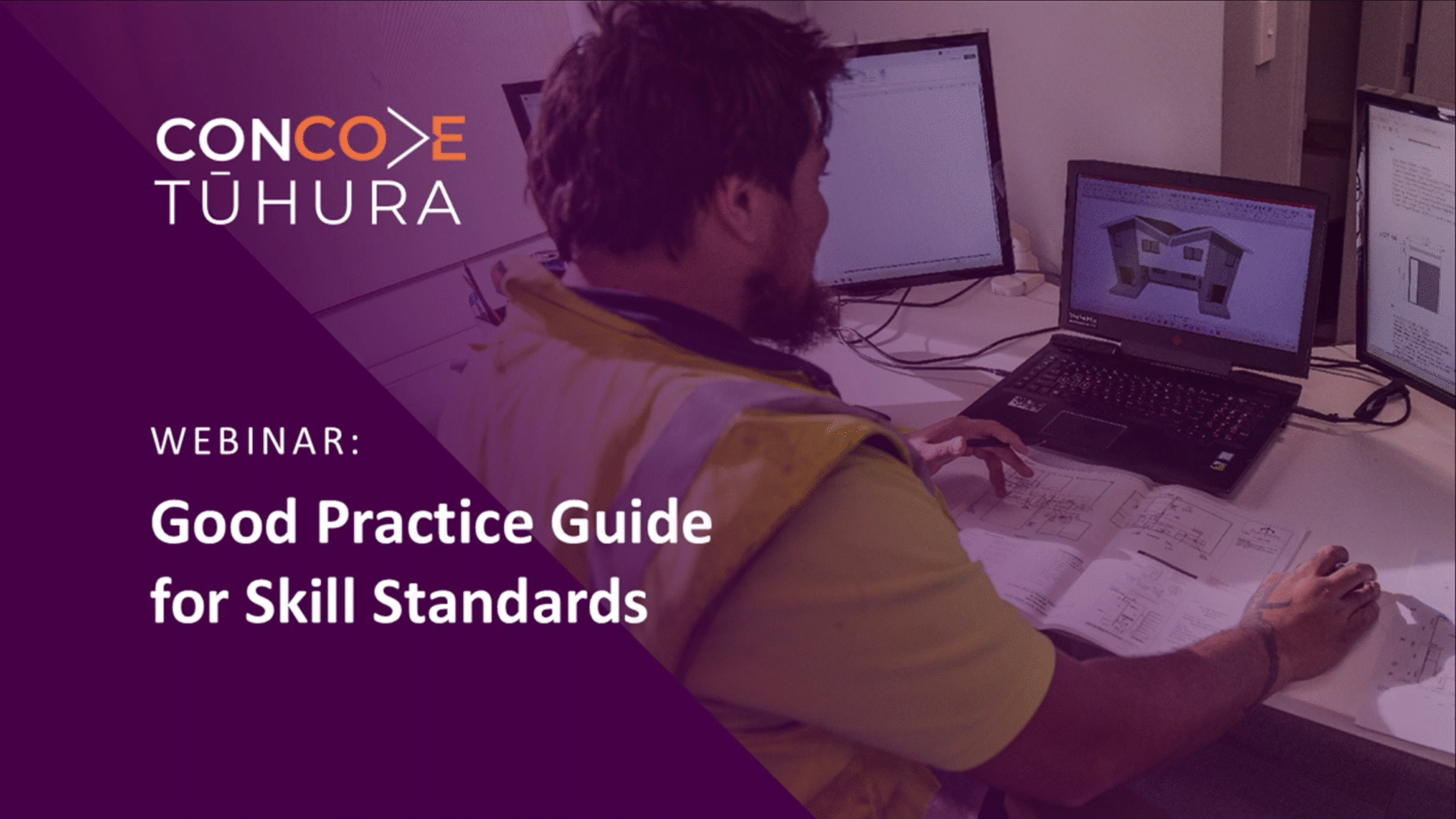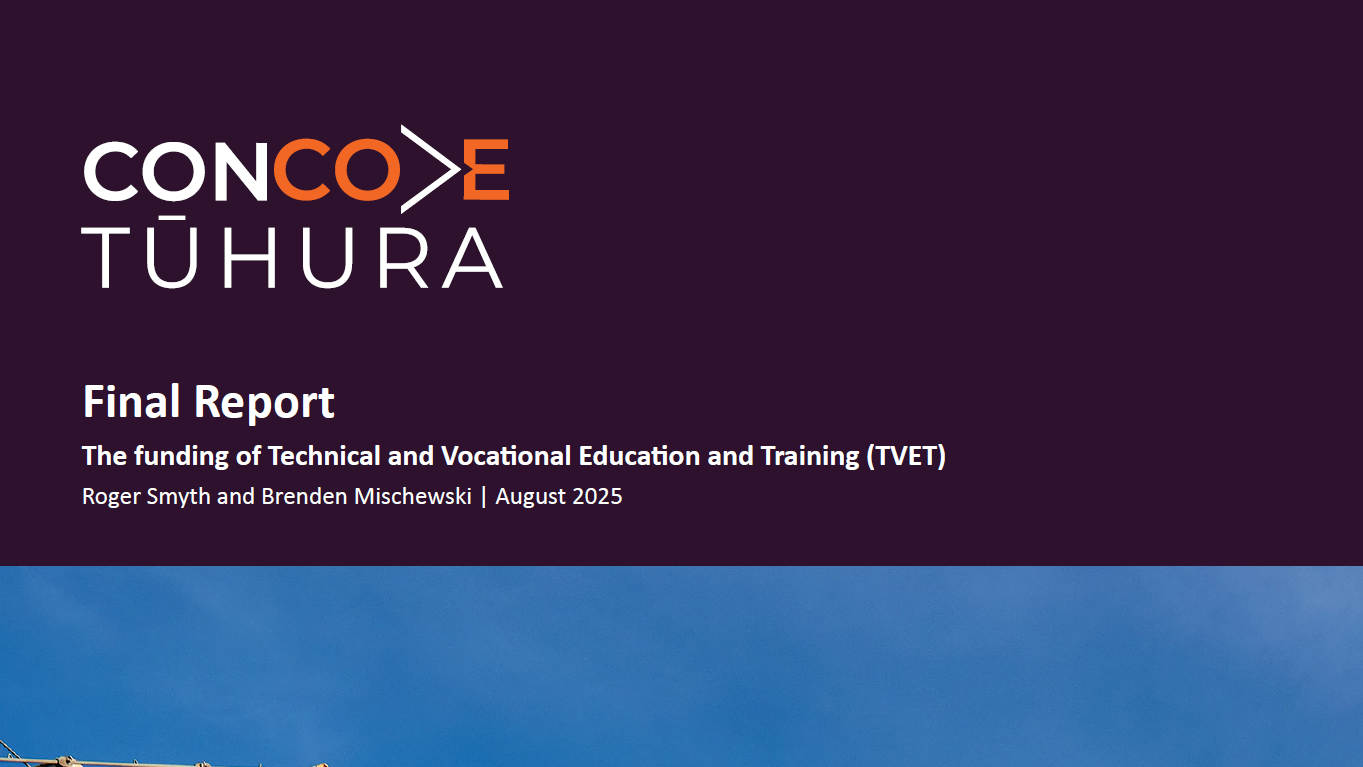About ConCOVE
ConCOVE connected industry, learners and vocational education to re-imagine clear, equitable and supported career pathways within Aotearoa New Zealand’s construction and infrastructure sectors. Operating from January 2021 to December 2025, ConCOVE delivered more than 38 major projects and a substantial body of applied research — including reports, webinars, events and submissions — to strengthen the vocational education system.
This body of work now stands as a legacy for the sector: a comprehensive evidence base and set of practical tools designed to inform future developments, lift employer capability and improve learner outcomes. With ConCOVE’s programme complete, the next phase belongs to the sector itself. The insights are clear, the solutions are built — now is the time for implementation.
The resources on this site remain available to support providers, employers, policymakers and communities as they take forward the next generation of vocational education innovation in Aotearoa.
A suite of research reports and practical tools exploring people leadership in Aotearoa’s construction and infrastructure sector — including insights on retention, wellbeing, leadership pathways, and culturally grounded leadership practice.
A national snapshot of skill gaps, workforce capability, and emerging technology needs across carpentry, electrical, and plumbing/gasfitting/drainlaying trades, based on employer and worker feedback from ConstrucTrend 2025.
A curated selection of organisations that play a significant role in New Zealand’s vocational education, workforce development, and sector capability building
ConCOVE’s response to the National Infrastructure Plan, highlighting critical workforce shortages and recommending a VET-centred, industry-led approach to build a skilled, diverse, future-ready infrastructure workforce.
ConCOVE’s comprehensive alternative to proposed VET reforms, highlighting system risks and presenting a future-focused model centred on equity, industry leadership, funding sustainability, and national consistency.
ConCOVE’s response to proposed work-based learning reforms, emphasising learner-centred pathways, employer leadership, clear roles, national consistency, and sustainable funding for a future-ready vocational ecosystem.
ConCOVE’s response to the draft Tertiary Education Strategy, calling for long-term stability, faster system responsiveness, and funding and regulatory reform to enable genuine innovation and workforce outcomes.
ConCOVE’s formal response to proposed VET system reforms, highlighting risks, opportunities, and the need for innovation, national consistency, and industry-led solutions for construction and infrastructure training.
A collection of ConCOVE Tūhura’s annual reports, showcasing our year-by-year progress, research insights, sector impact, and contributions to vocational education for Aotearoa’s construction and infrastructure sectors.
Practical, industry-informed guidelines to help construction and infrastructure organisations build safe, inclusive, and respectful workplaces by addressing harmful behaviours, strengthening leadership, and embedding long-term cultural change.
A data project to understand how people navigate into, through and out of the construction and infrastructure workforce.
This research, funded by BCITO and ConCOVE, shows employers invest about $28,000 per apprentice yearly and calls for further study on which support most improves retention.
This is a practical and adaptable guide that equips small and medium employers with a five-step framework and tools to engage more effectively with schools and students.
The framework provides a shared definition of the role that can lift the value of Training Advisors with everyone they serve. Clarifying capabilities, competencies and progressions to lift learner success, strengthen employer relationships and guide workforce development.
Provides an onboarding toolkit supporting Kaiako transitioning from industry into provide-based vocational education & training, structuring four phases that build confidence, cultural responsiveness and capability, strengthening teams and outcomes for ākonga.
This report investigates why Māori and women remain underrepresented in engineering at New Zealand polytechnics, analysing foundation programmes, barriers, and student experiences across 14 institutions.
This webinar explores the comprehensive enabling framework for degree-level apprenticeships and the launch of three essential implementation guides for employers, students, and tertiary education organisations.
This guide supports tertiary providers to co-design and deliver degree apprenticeships that integrate study and work, advancing collaboration, quality learning, and equitable pathways across Aotearoa.
This guide helps learners combine paid work with degree study, gaining real-world experience, earning while learning, and building skills for a stronger, future-focused career in Aotearoa.
This guide helps employers design and support degree apprenticeships that blend paid work with degree study, building skilled talent, stronger businesses, and a more resilient Aotearoa workforce.
This enabling framework aligns employers, educators, and government to deliver sustainable, high-quality degree apprenticeships, integrating work-based learning, equity, and partnership to strengthen New Zealand’s education-to-employment pathway.
A comprehensive body of work providing a national evidence base and practical guidance for embedding pastoral care and needs-based support across New Zealand’s construction and infrastructure workforce.
The toolkit helps make training apprentices more productive, profitable, and sustainable.
ConCOVE’s report explores the skills and support tradespeople need to run successful SMEs, finding strong technical ability but limited business acumen driving high failure rates.
NZ's first comprehensive examination of whether artificial intelligence (AI) can design assessments capable of passing New Zealand’s national moderation system.
Discover how AI can create personalised assessments for diverse VET learners. This pioneering Aotearoa study explores AI-generated assessments transforming vocational education quality, relevance, and learner engagement across New Zealand.
Tūhura: Insights to Actions (20–21 August 2025, Te Papa, Wellington) convenes sector leaders to turn ConCOVE research into practical change, advancing a future-ready, inclusive vocational education and workforce system.
Present on recent analysis commissioned by ConCOVE Tūhura, Amotai and Poutama Trust on the future workforce skills needed for Māori and Pasifika-owned businesses in New Zealand's construction sector.
Future focussed skills: Growth opportunities for Māori and Pasifika owned businesses in greener construction.
Introduces the On Site Upstanders (tauiwi) and Te Maru o Hine (kaupapa Māori) theories.
Micro-credentials, introduced to the NZQCF in 2018, offer targeted learning to bridge skill gaps, yet declining uptake highlights the need to reassess their role in workforce development.
This analysis supports policy development to improve sector labour market outcomes, focusing on government-funded apprenticeship programmes as key interventions to strengthen workforce quality, quantity, and long-term sustainability.
Good practice in the development and implementation of skill standards-based qualifications.
Good practice in the development and implementation of skill standards-based qualifications.
Good practice in the development and implementation of skill standards-based qualifications.
Good practice in the development and implementation of skill standards-based qualifications.
How to Use the Good Practice Guides.
Good practice in the development and implementation of skill standards-based qualifications.
Good practice in the development and implementation of skill standards-based qualifications.
Good practice in the development and implementation of skill standards-based qualifications.
Full analysis of the current supply of and demand for the prefabrication workforce.
This report captures the delegation’s collective experiences, insights, and exchanges, and outlines next steps toward building a robust, responsive vocational education ecosystem for Aotearoa New Zealand.
An independent analysis evaluating the supply of and demand for the offsite manufacturing workforce.
Summary of Current State Analysis Report - February 2024.
The potential of Offsite Manufacturing and Systems Change.
Current State Analysis Report - February 2024.
An investigation of the workforce entry points into the construction and infrastructure sectors.
Full report: Professional environmental training - a landscape scan.
What does carpentry education and qualification look like for Māori?
The report highlights the need for a coherent national approach to address the skilled labour shortage.
He Ruku Hohonu / What does people said, what does L4 carpentry education and qualification look like for Māori?
A systems gap analysis for transformative change in the Aotearoa New Zealand vocational education and training sector pipeline.
An analysis of the current supply of and demand for the prefabrication workforce.
Introduction to the dashboard, key features and functionality demonstration.
What the people said, what does Level 4 carpentry education and qualification look like for Māori?
A Framework to Eliminate Sexual Harassment & Hostile Work Environments for Women in Construction.
A Framework to Eliminate Sexual Harassment & Hostile Work Environments for Women in Construction & Infrastructure.
Discover the research details underpinning the On Site Upstanders report and Theory of Change.
In this article, Deputy Director George Makapatama explores how ConCOVE utilises systems change and its fundamentals to approach our projects.
Building the business case for professional environmental training - a Phase 1 landscape scan.
Upskilling Māori Construction Practitioners: Final report.
This case study showcases the Cook Brothers Construction Apprenticeship Academy.
A systems gap analysis to understand the changes may be required to enable degree-level apprenticeships as a delivery mechanism for VET.
This project aim to predict the trends that will impact the quarrying industry in New Zealand.
A kaupapa māori theory of change for addressing sexual harassment against wāhine through tāne allyship in the construction and infrastructure industries.
The summary highlights the need for a coherent national approach to address the skilled labour shortage.
In this webinar, we explore how training advisors can revolutionise apprenticeship outcomes using the six conditions of systems change.
Micro-credentials and digital credentials are emerging as potential game-changers in vocational education, especially in promoting lifelong learning. Yet, their role remains misunderstood by many learners, employers, and institutions.
This guide outlines key strategies for organisations supporting SMEs in adopting new practices, improving skills, and contributing to the sector's growth.
Investigating training advisors in work-based learning in the construction and infrastructure sector
Examined how the six conditions of system change impact on the training and support provided by training advisors to learners.
This research delves into the capabilities and practices of effective work-based trainers supporting New Zealand Apprenticeships in the construction and infrastructure industry.
This webinar explore the new Bystander Guidelines developed to strengthen leadership, support implementation, and enable safe, practical action to eliminate sexual harassment across Aotearoa’s construction and infrastructure sector.
Provider-based VET kaiako development pathways.
Large parts of Aotearoa lack Trades Academy programmes in infrastructure, limiting youth exposure to the sector despite strong regional demand and national plans for a skilled infrastructure workforce.
A kaupapa māori theory of change for addressing sexual harassment against wāhine through tāne allyship in the construction and infrastructure industries.
Join Katherine Hall, Executive Director of ConCOVE Tūhura, as she discusses the recommendations from ConCOVEs funding paper.
This case study showcases a local group apprenticeship organisation, ATNZ, and the use of augmented reality (AR) delivered by trainers on its welding apprenticeship programme.
This work explores interventions in the VET kaiako and training adviser system, drawing on crossover insights from ConCOVE’s VET kaiako and training adviser research trilogy.
These findings provide valuable direction for new Industry Skill Boards (ISBs) to embed digital competencies into vocational education and training.
In this webinar, we provide actionable insights and recommendations from the work-based trainer project, designed to improve apprenticeship outcomes and support trainers in their essential role.
Join Katherine Hall, Executive Director of ConCOVE Tūhura, as she discusses the apprenticeship system with industry leaders Alexandra Vranyac-Wheeler (Master Electricians) and Sarah Baddeley (MartinJenkins).
Introduces Good Practice Guides for Skill Standards.
This report is the final result of the exploration into reforming the funding of vocational education in the construction and infrastructure sector.
The report will be exploring methods to support both neurodiverse people and those supporting those with neurodiversity.





